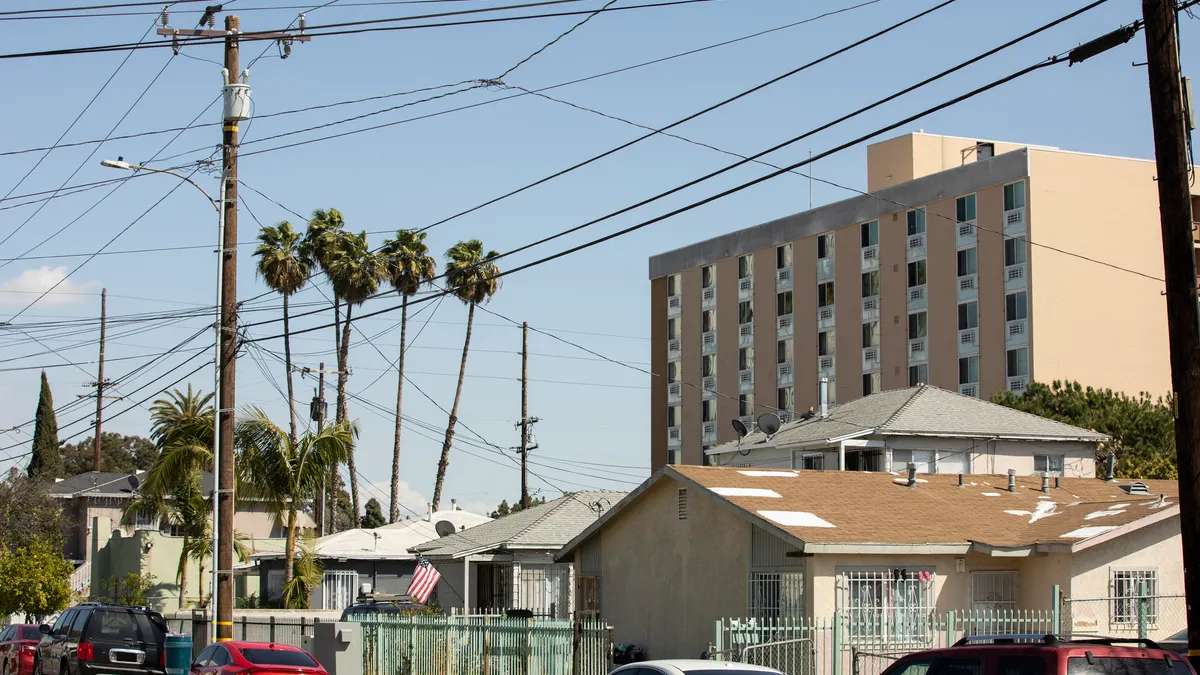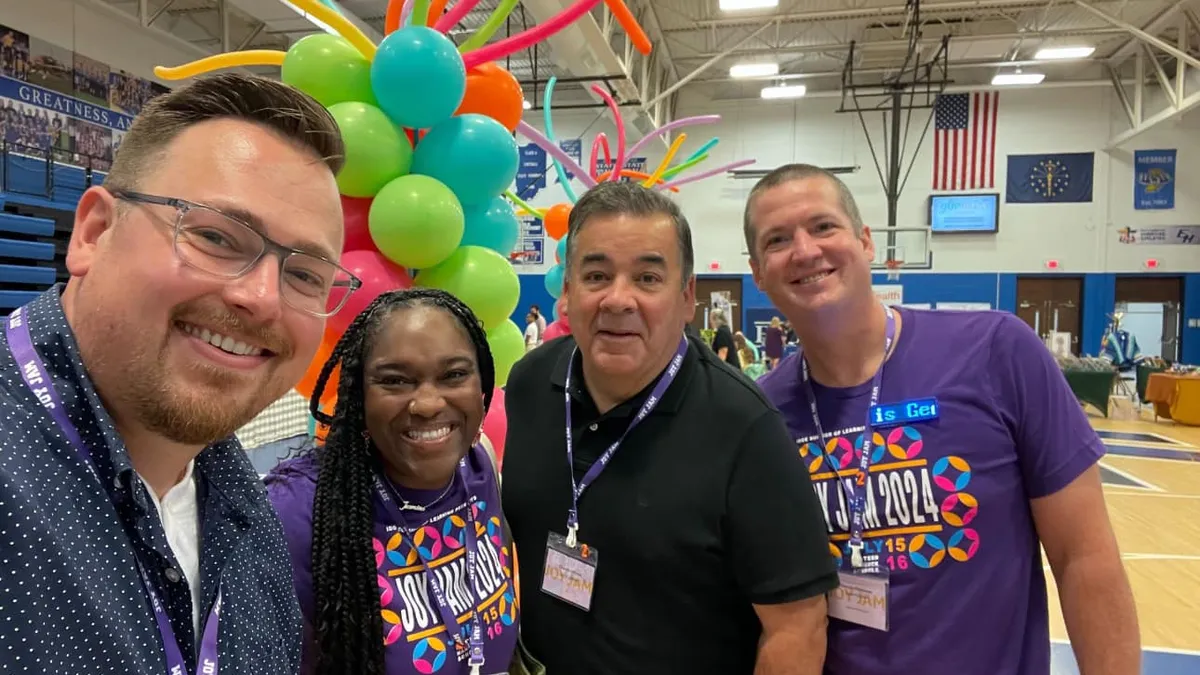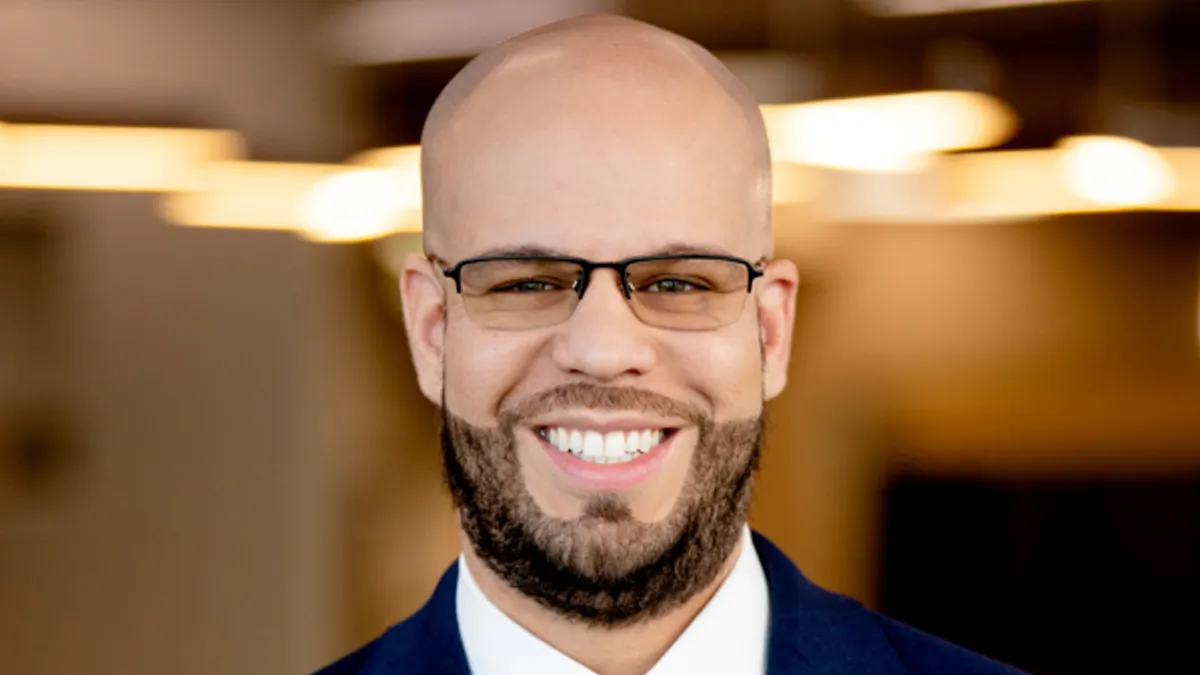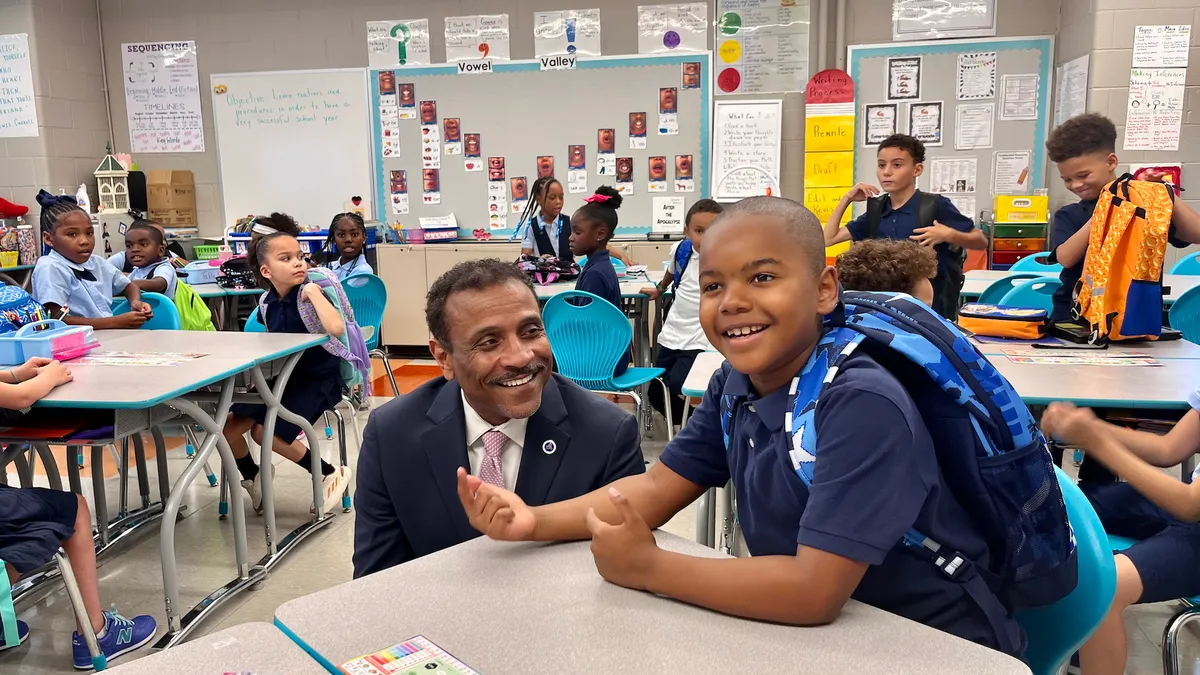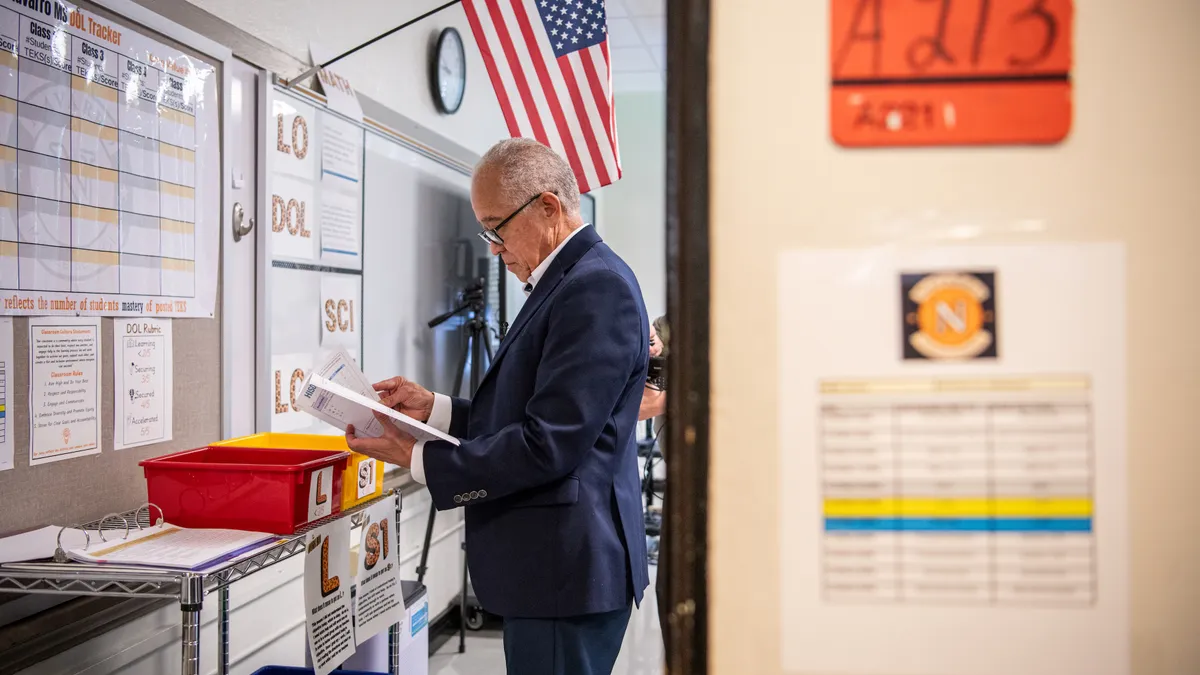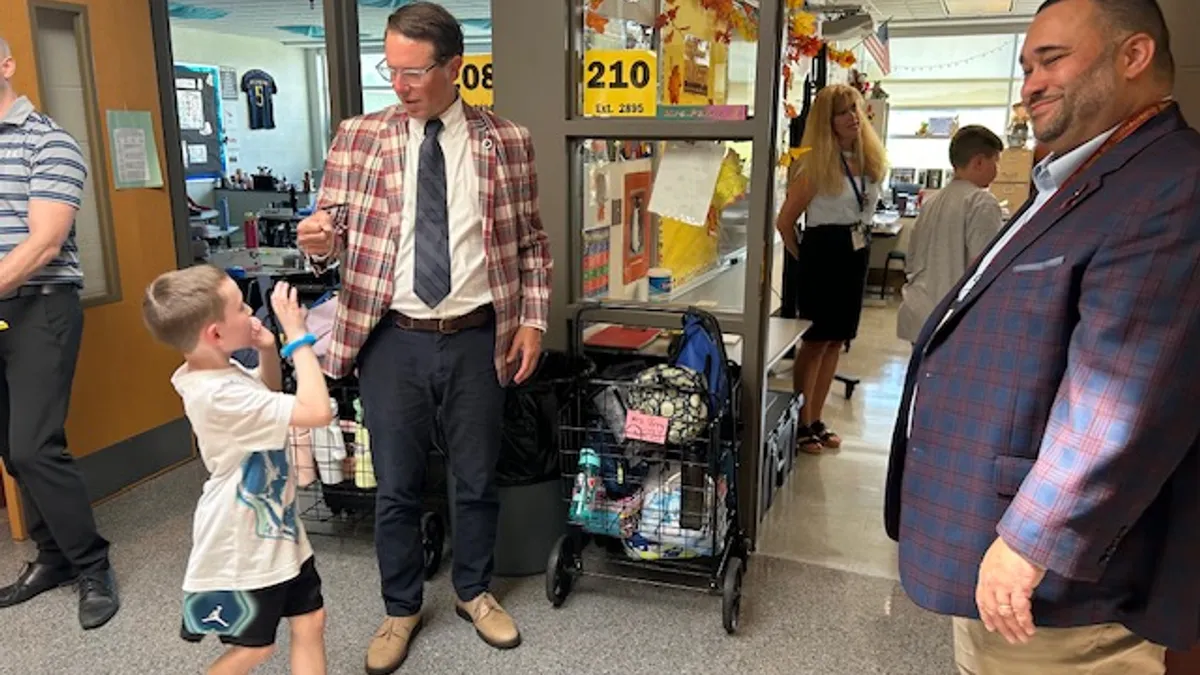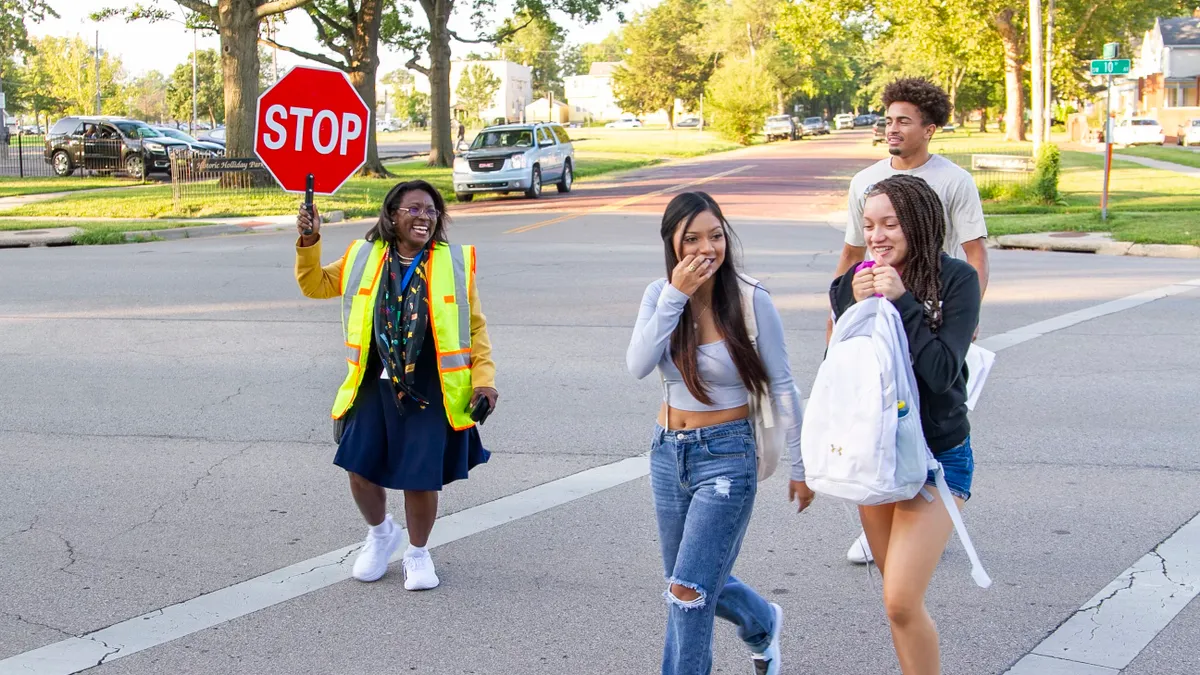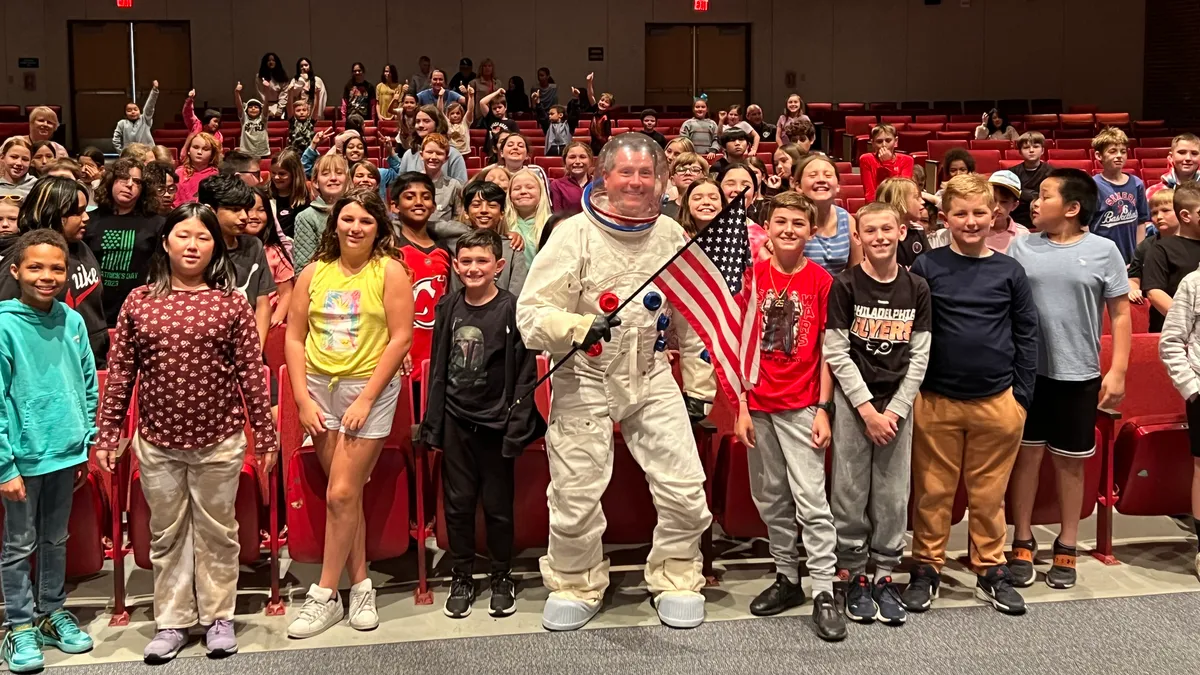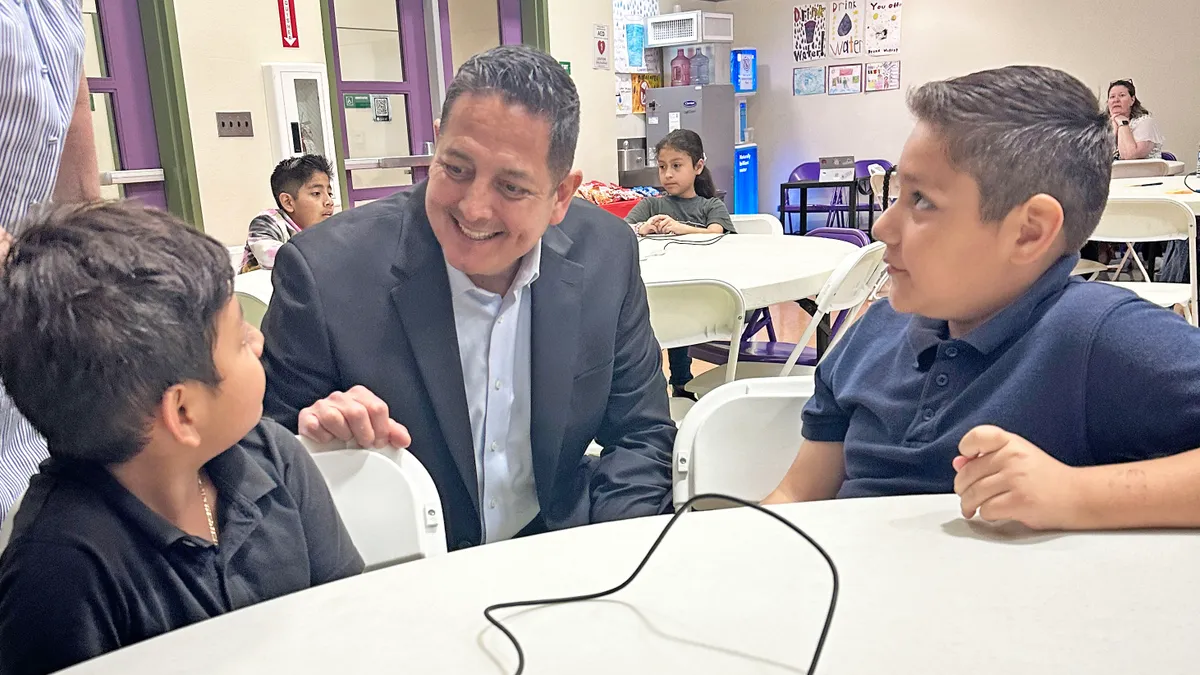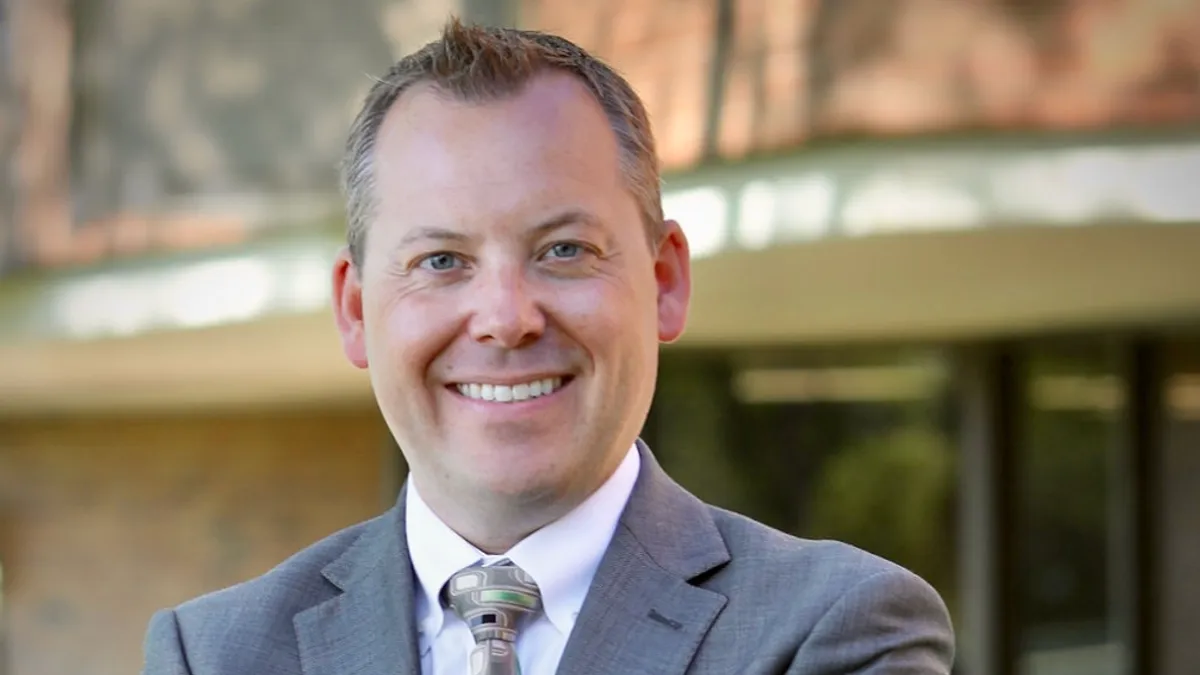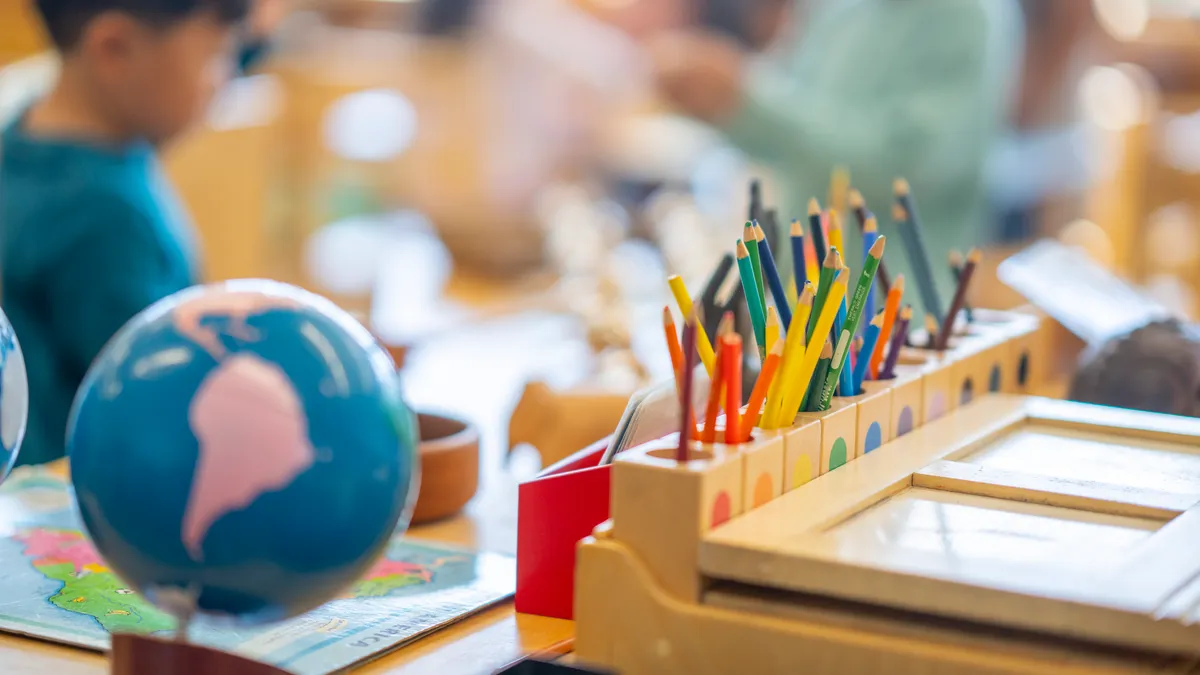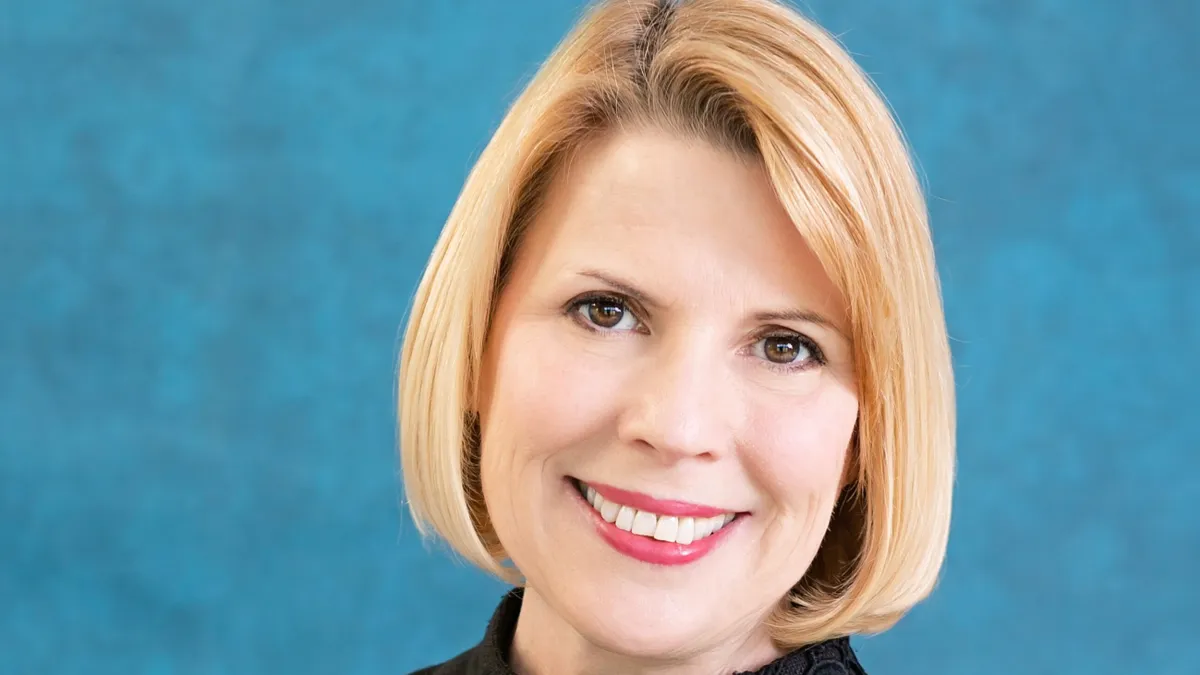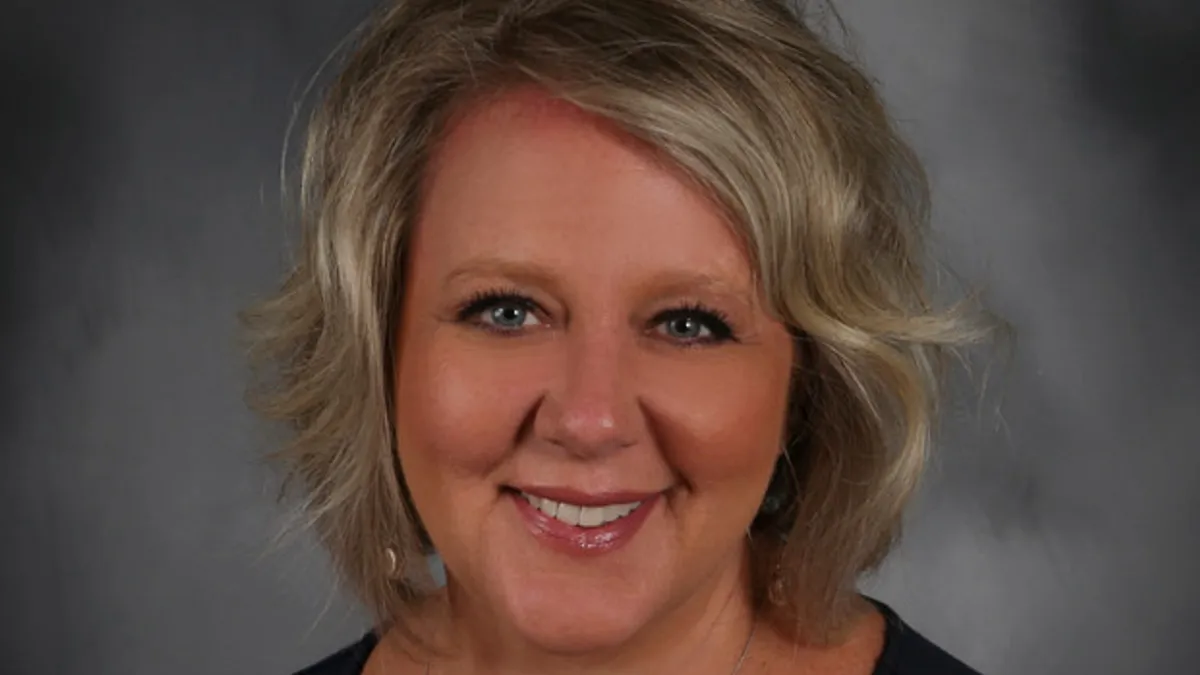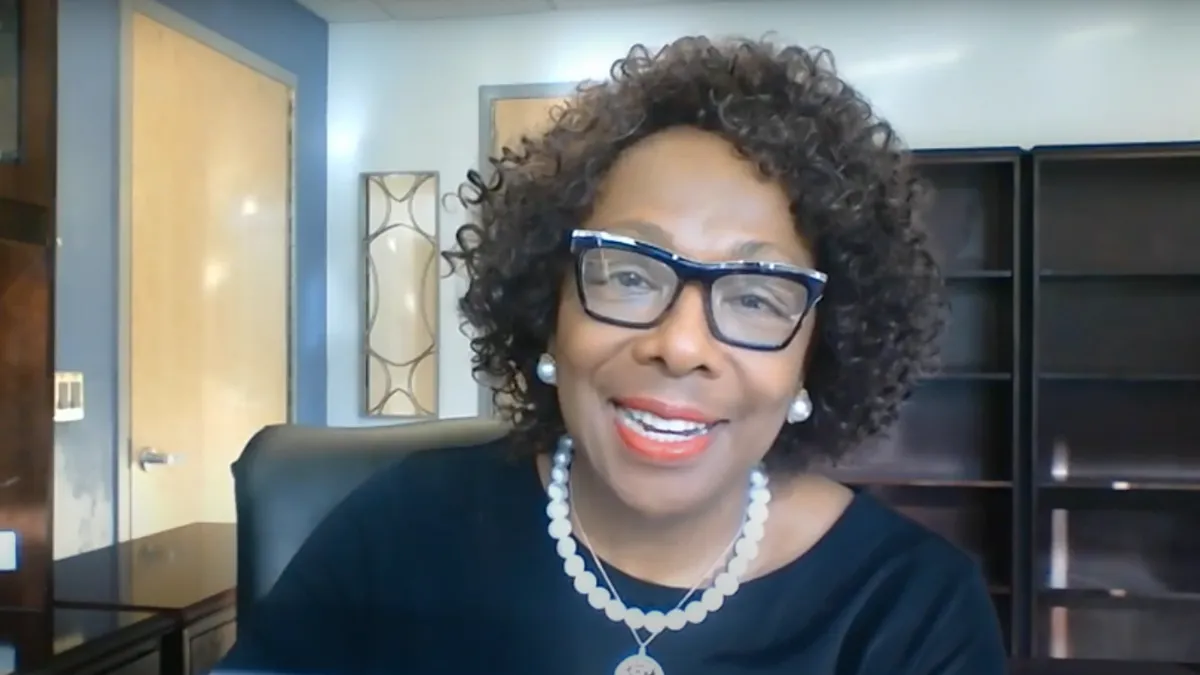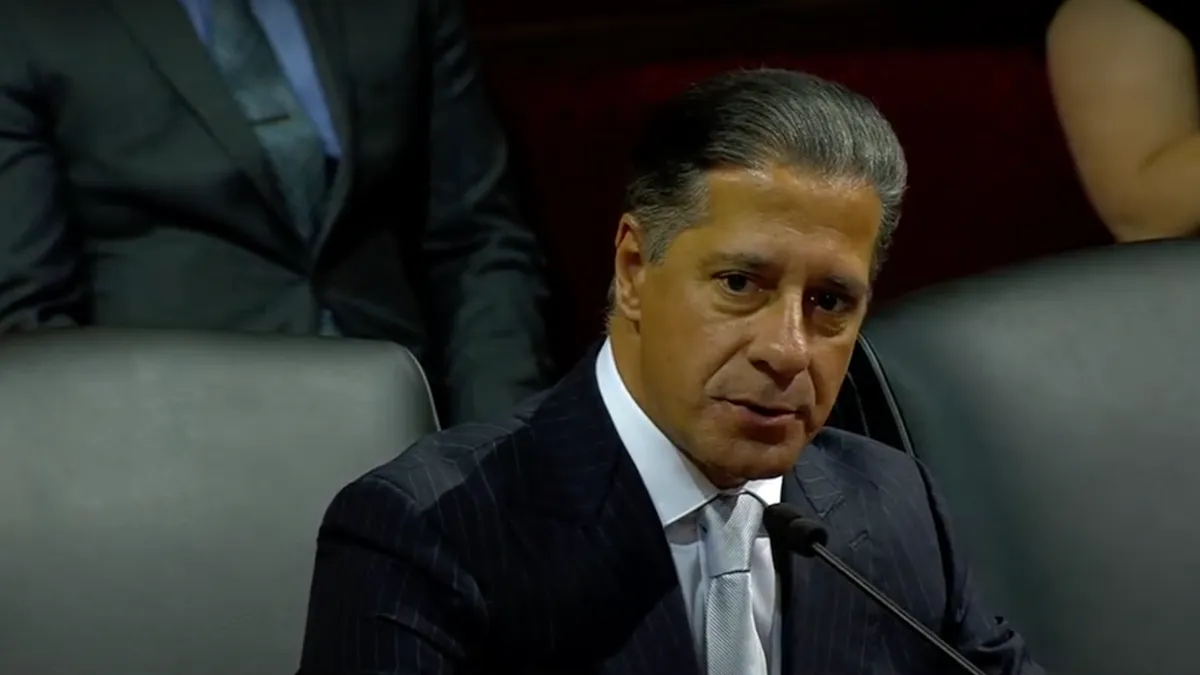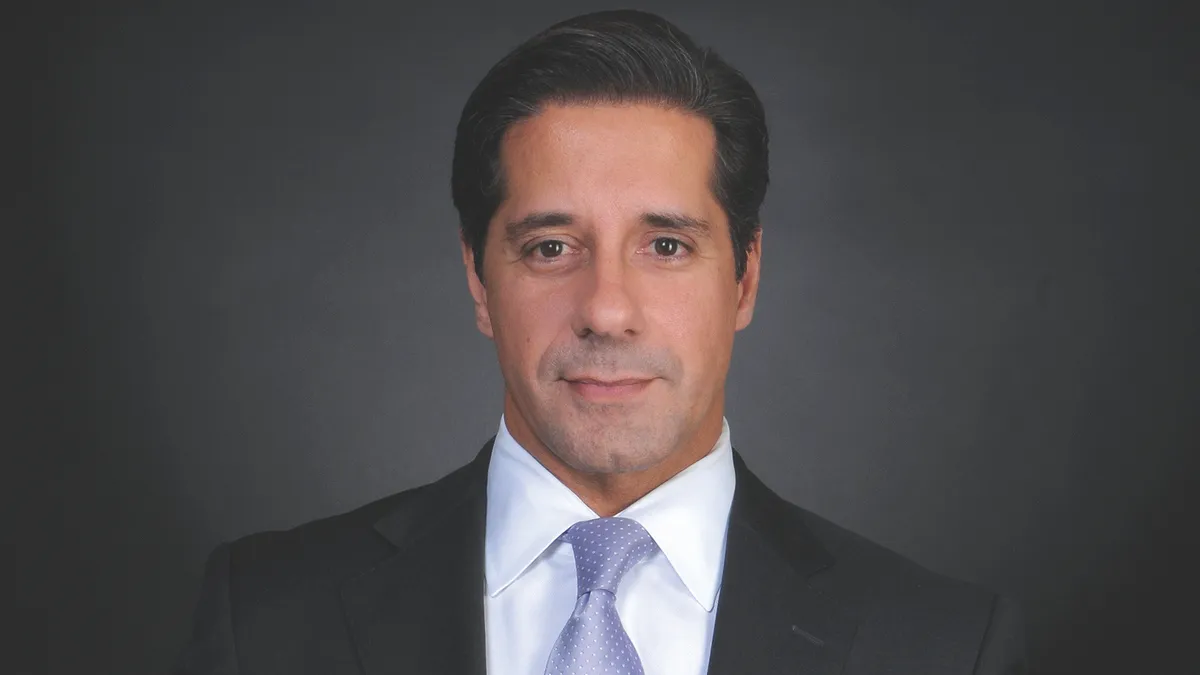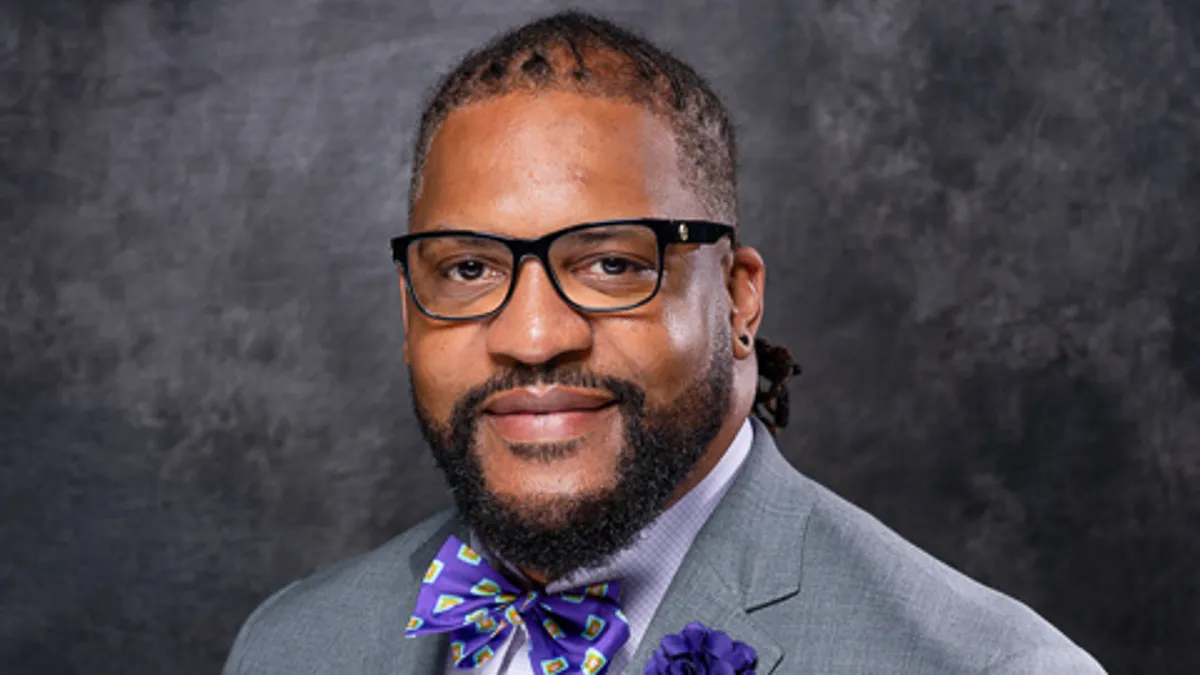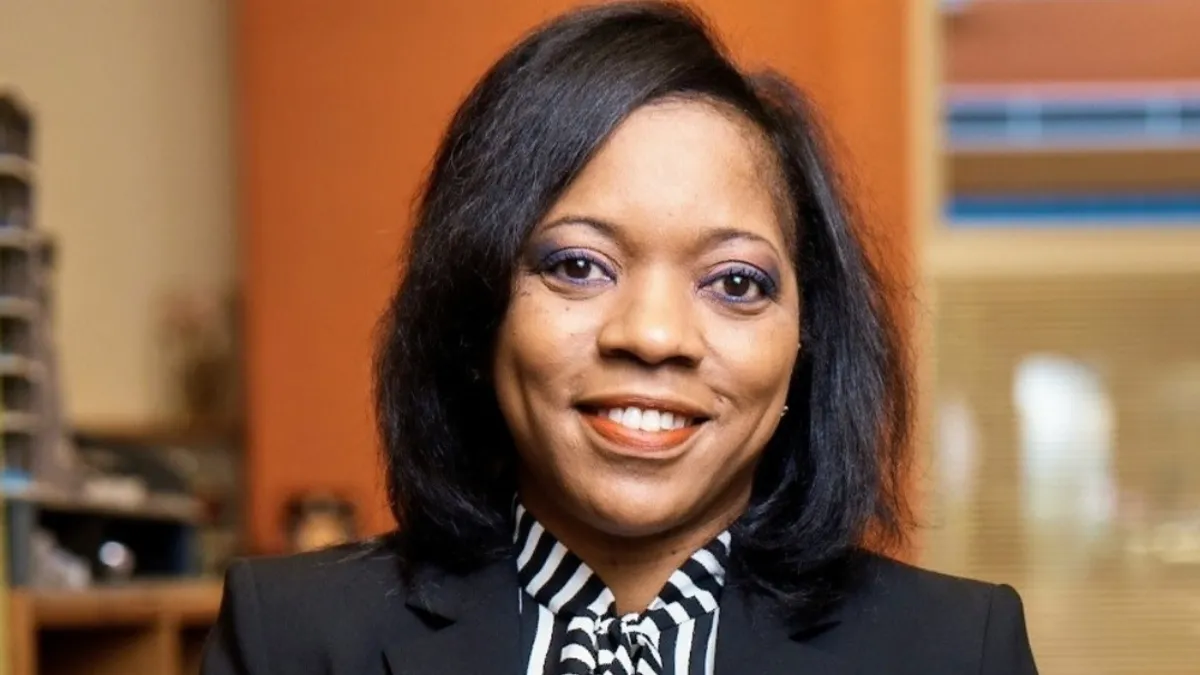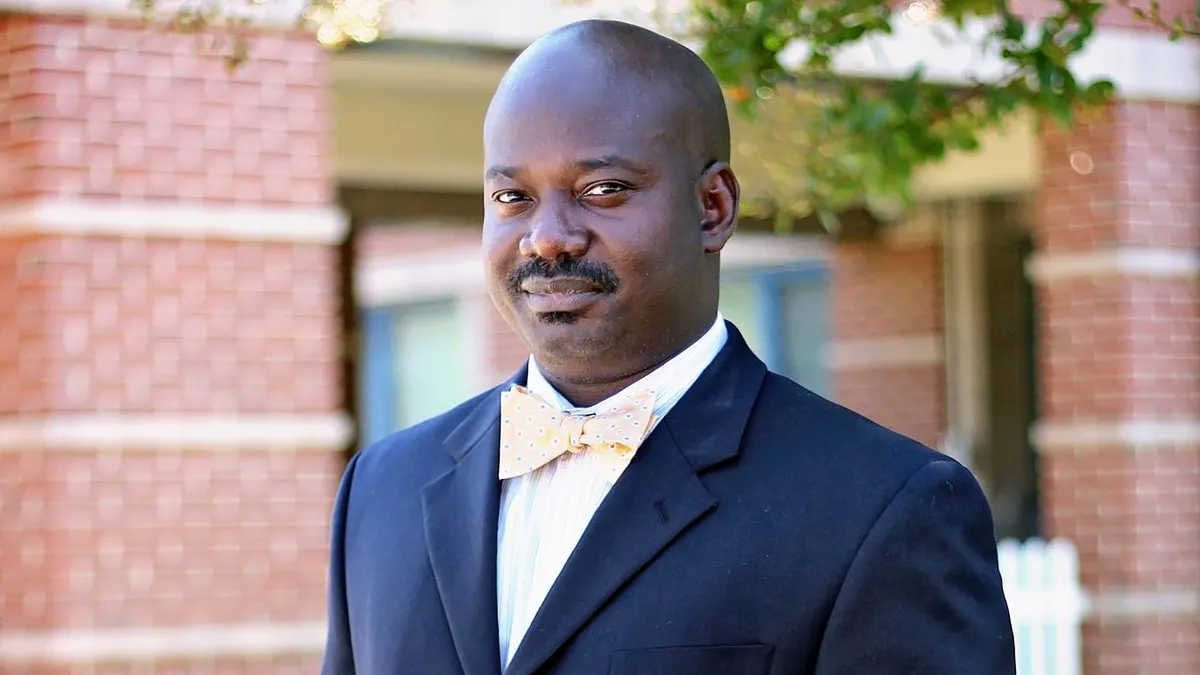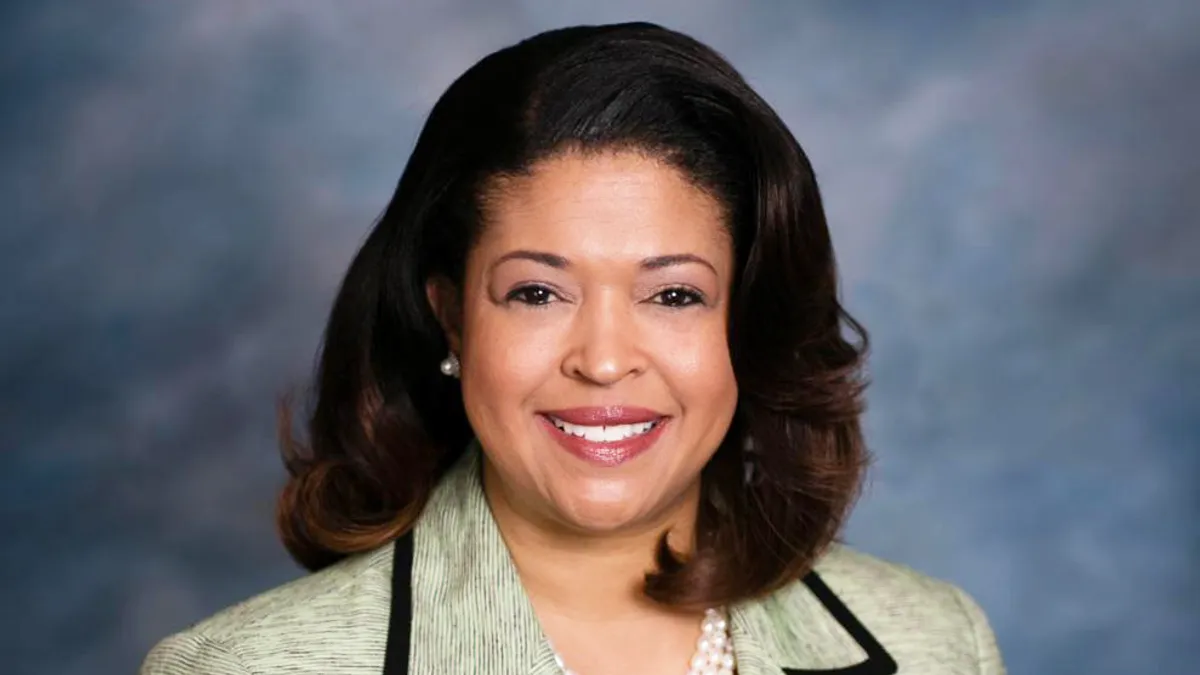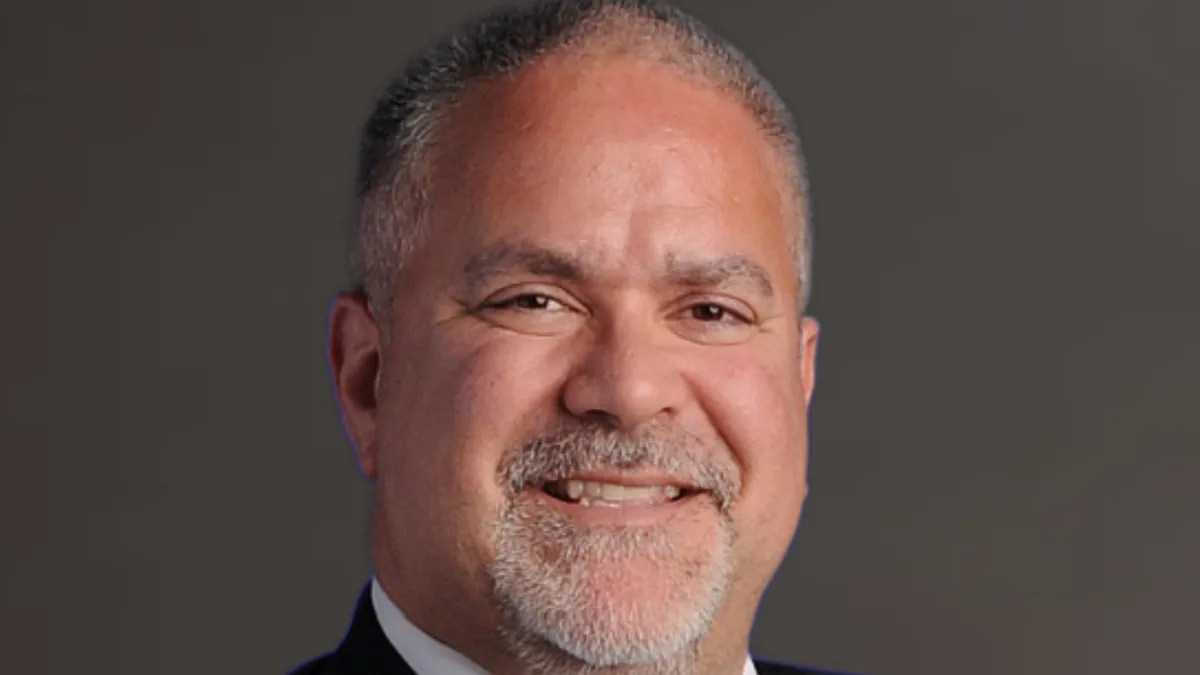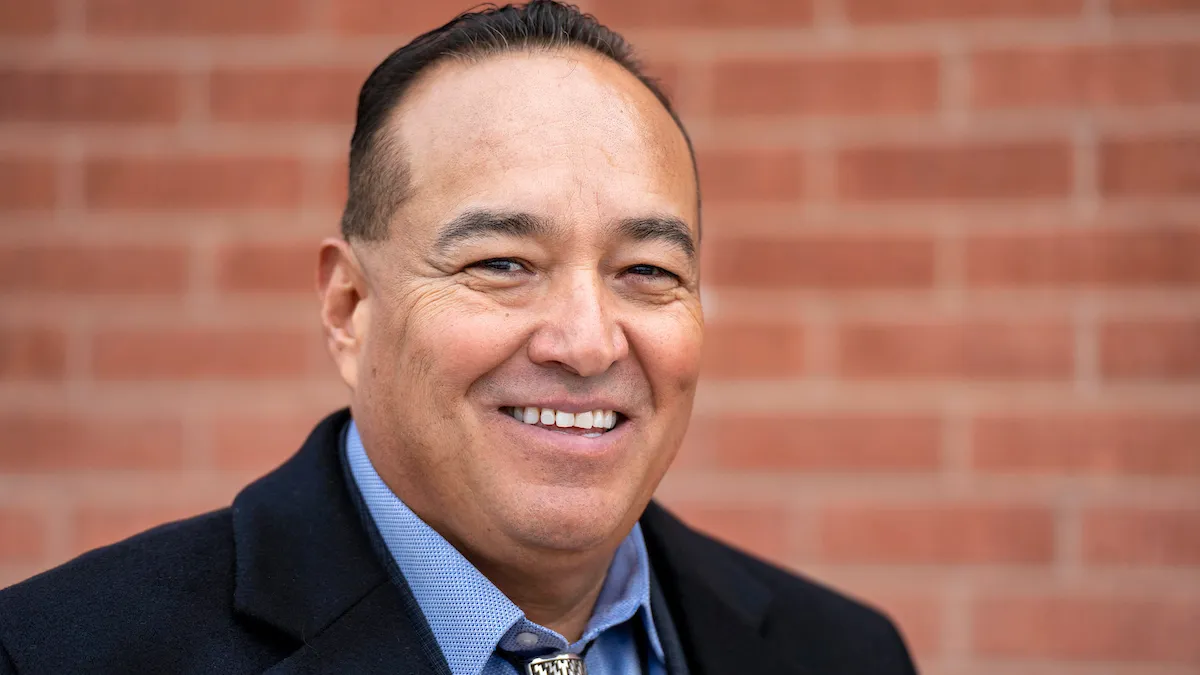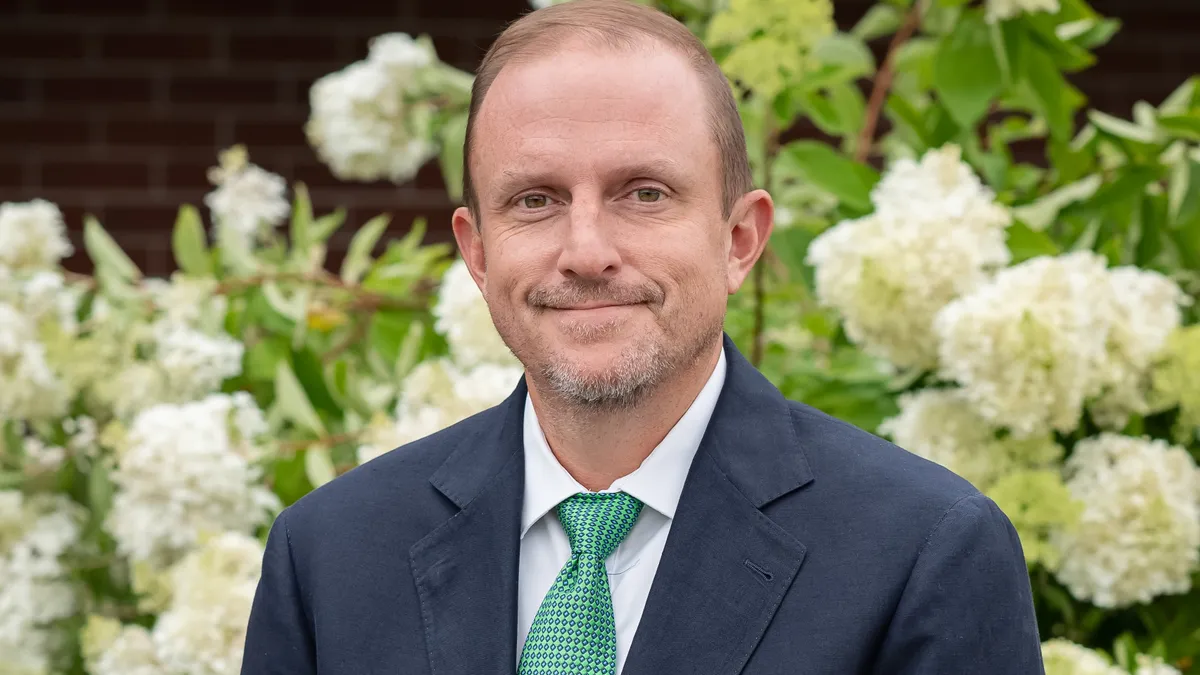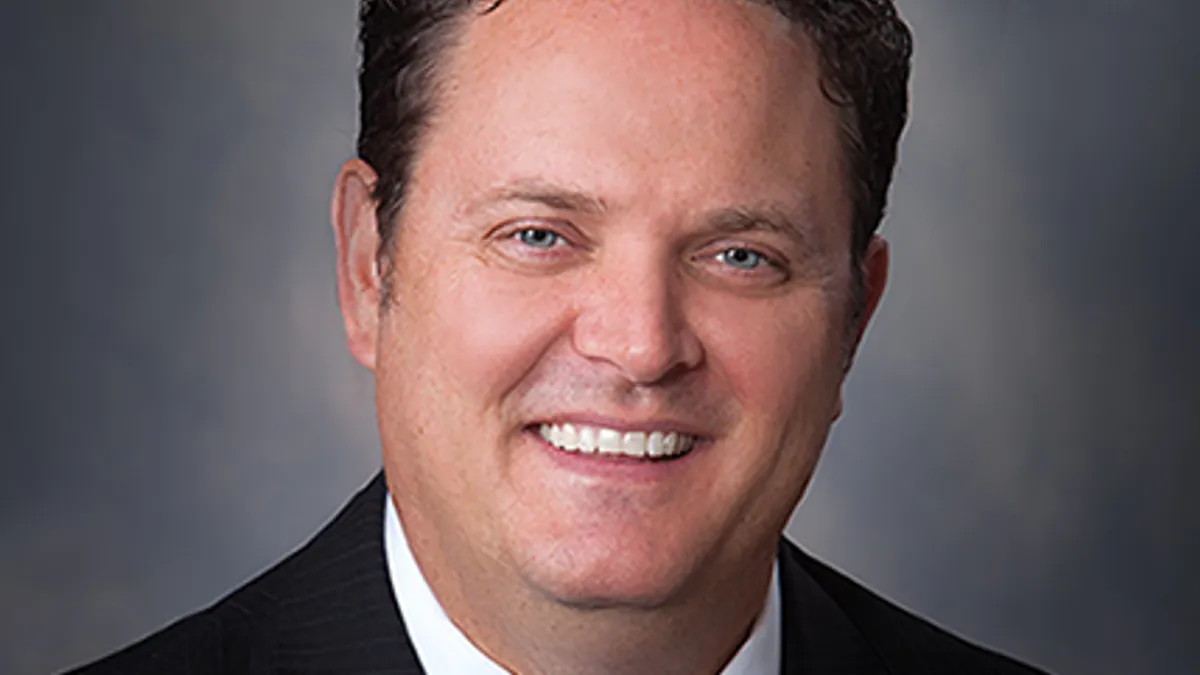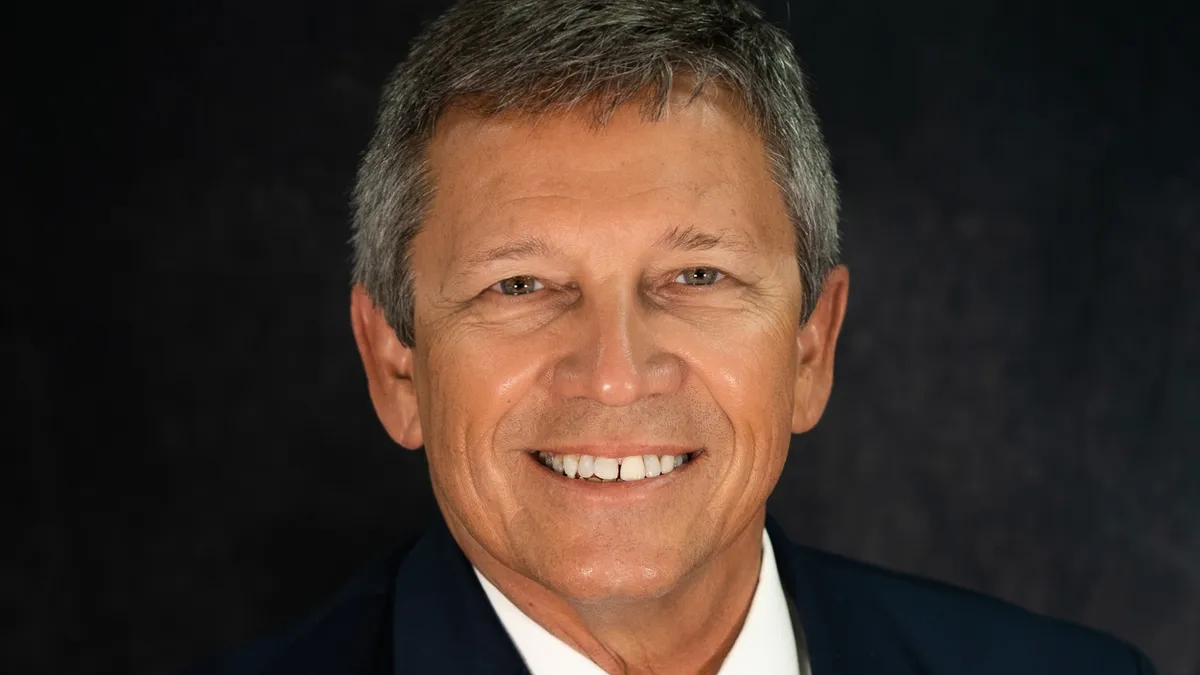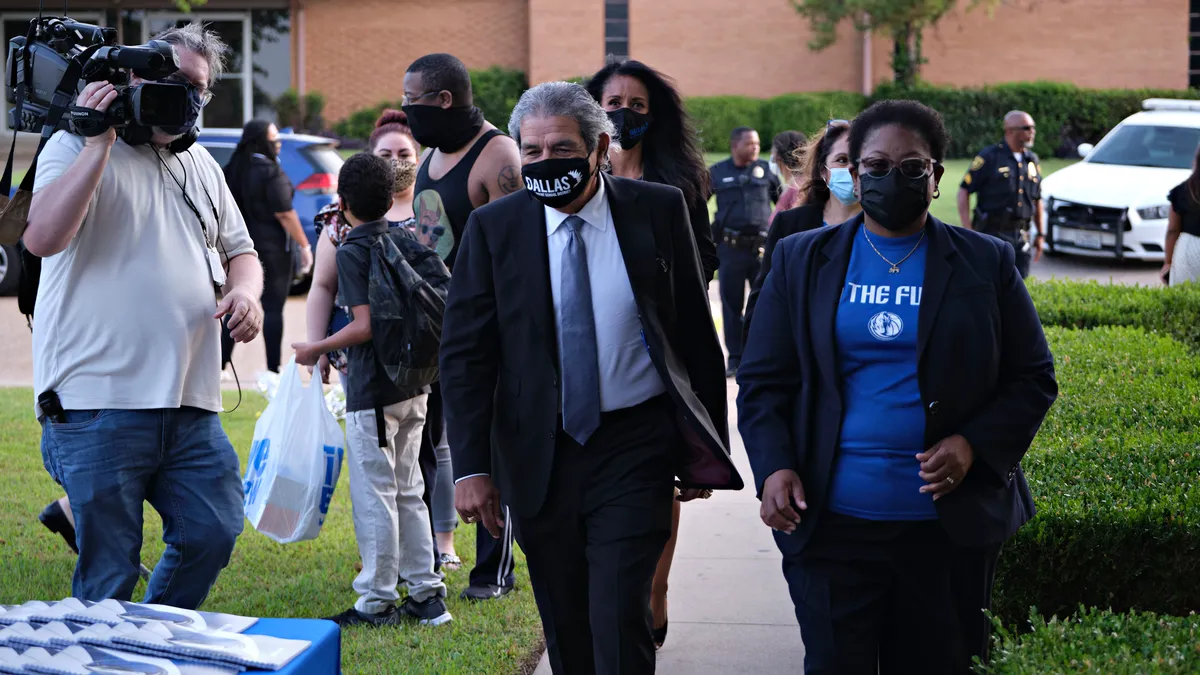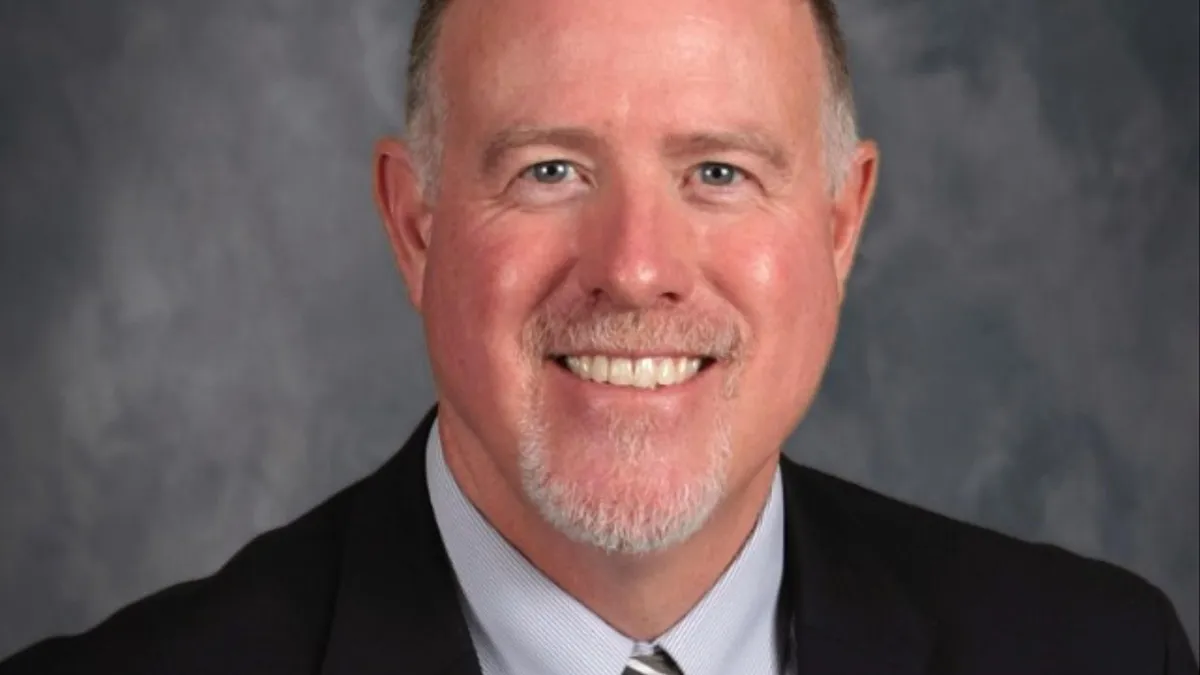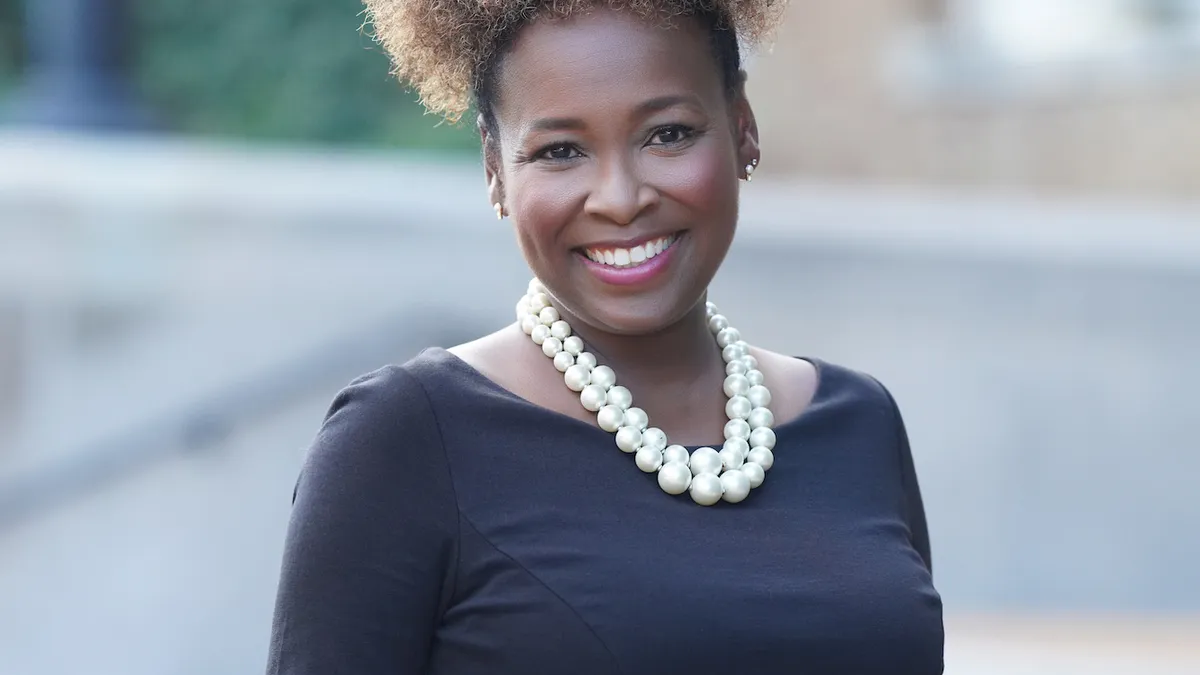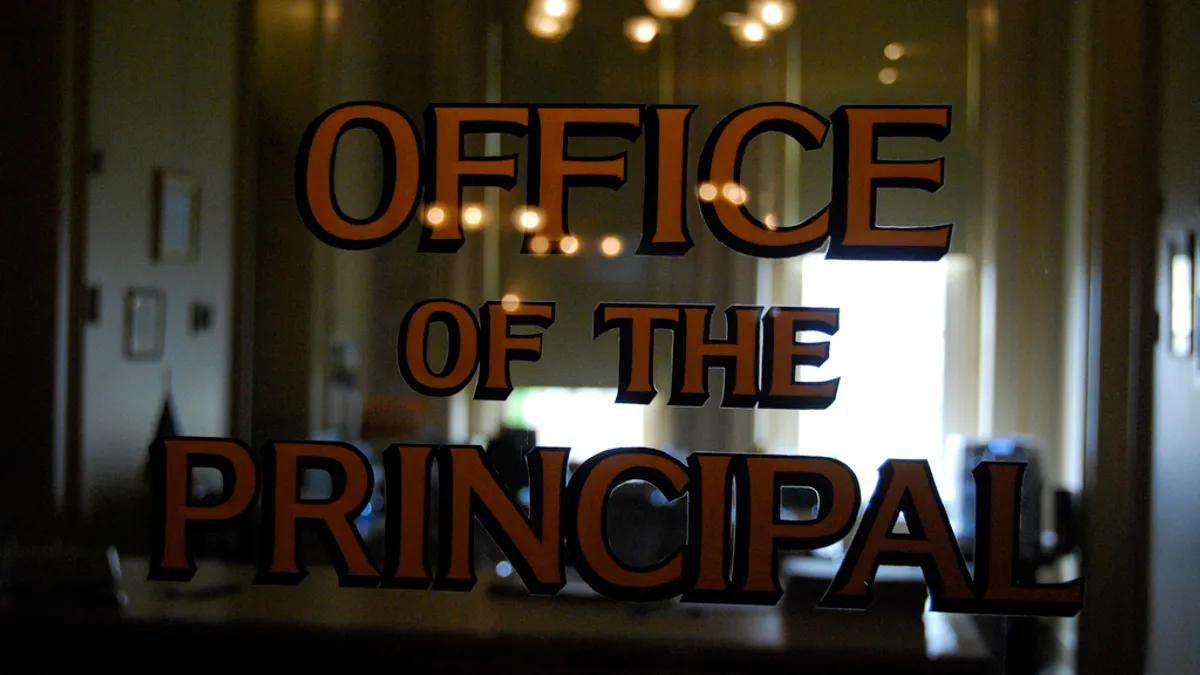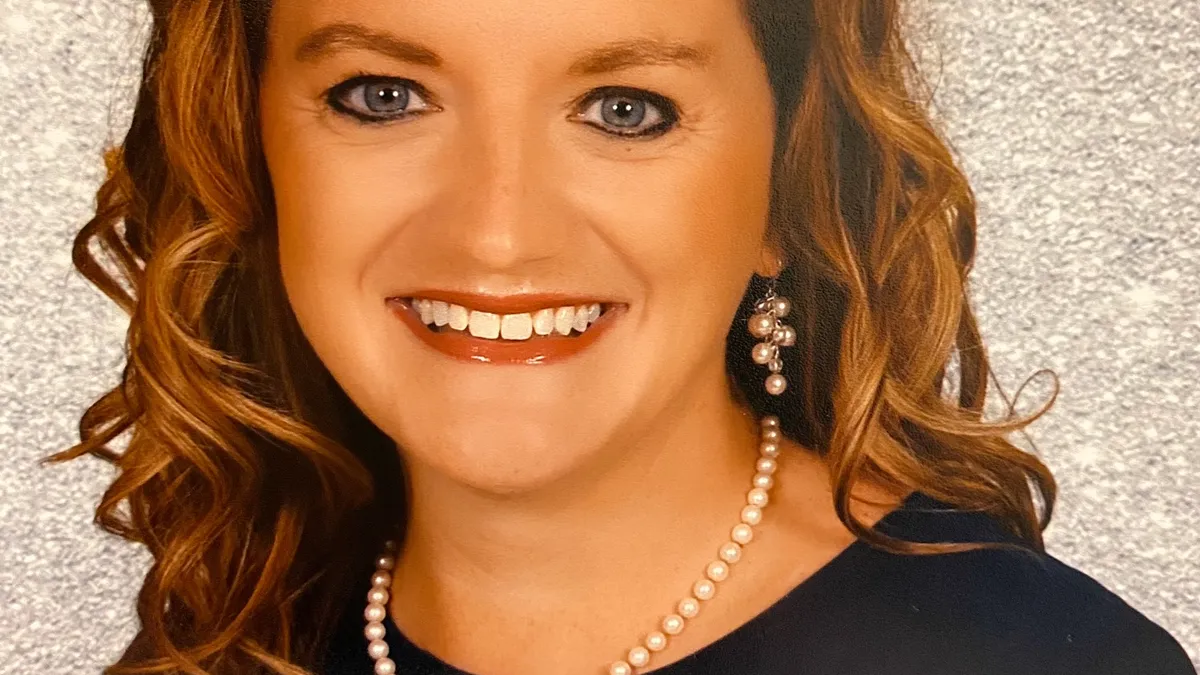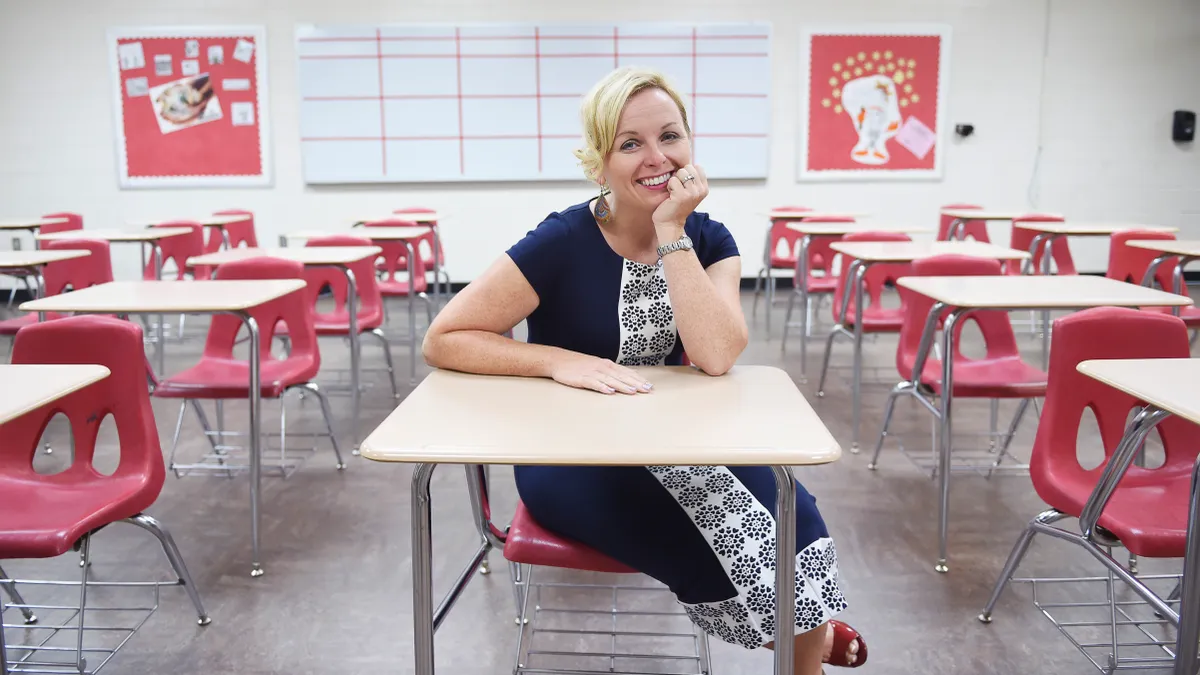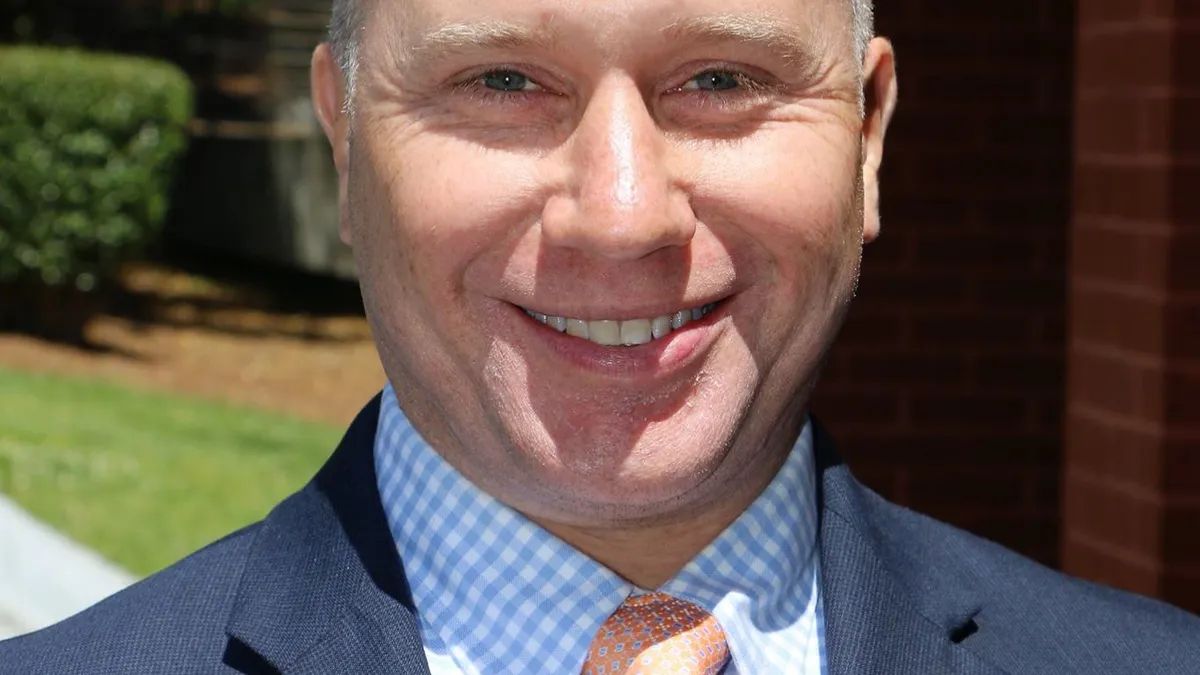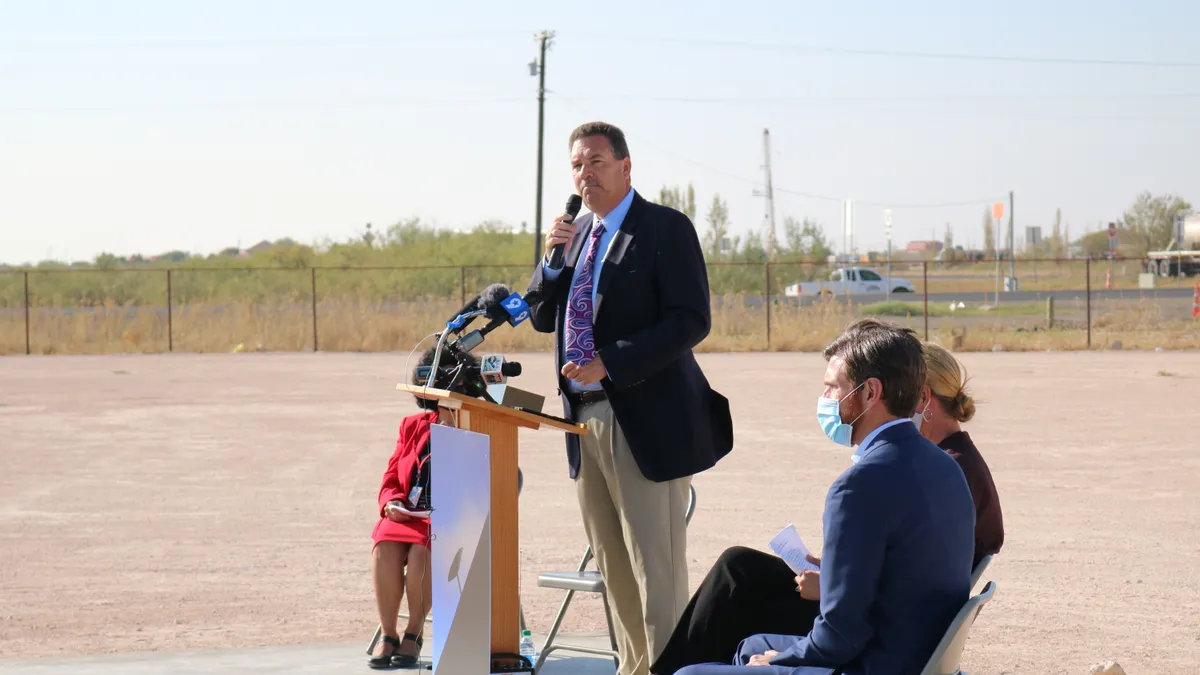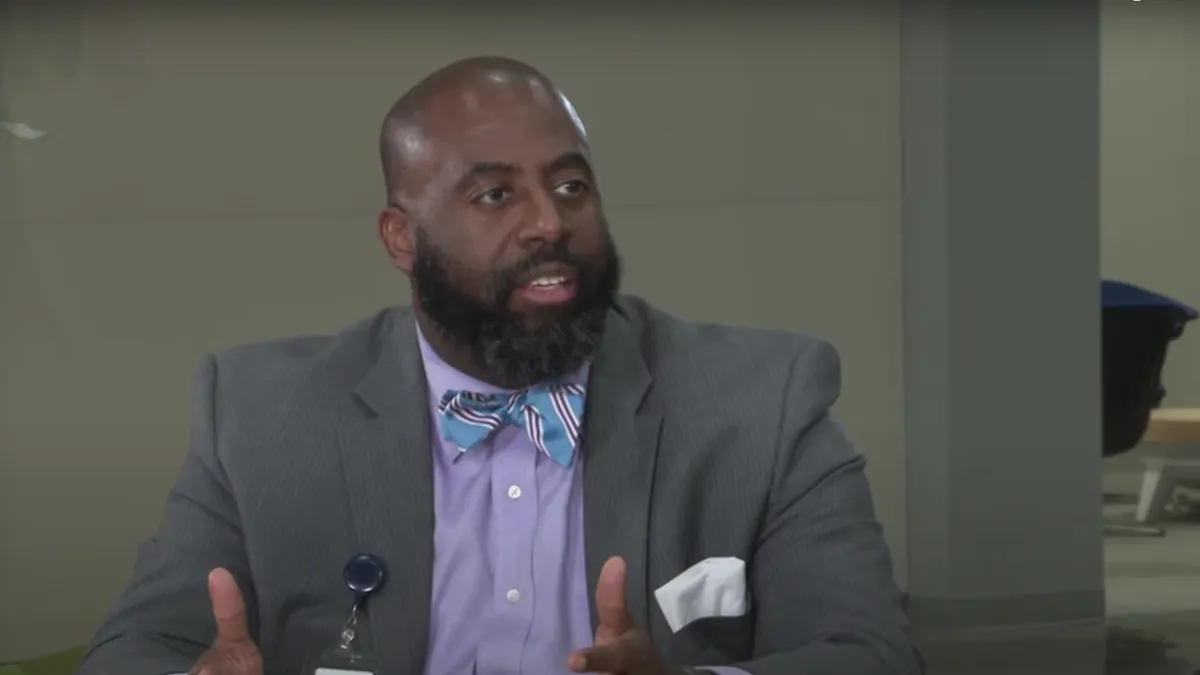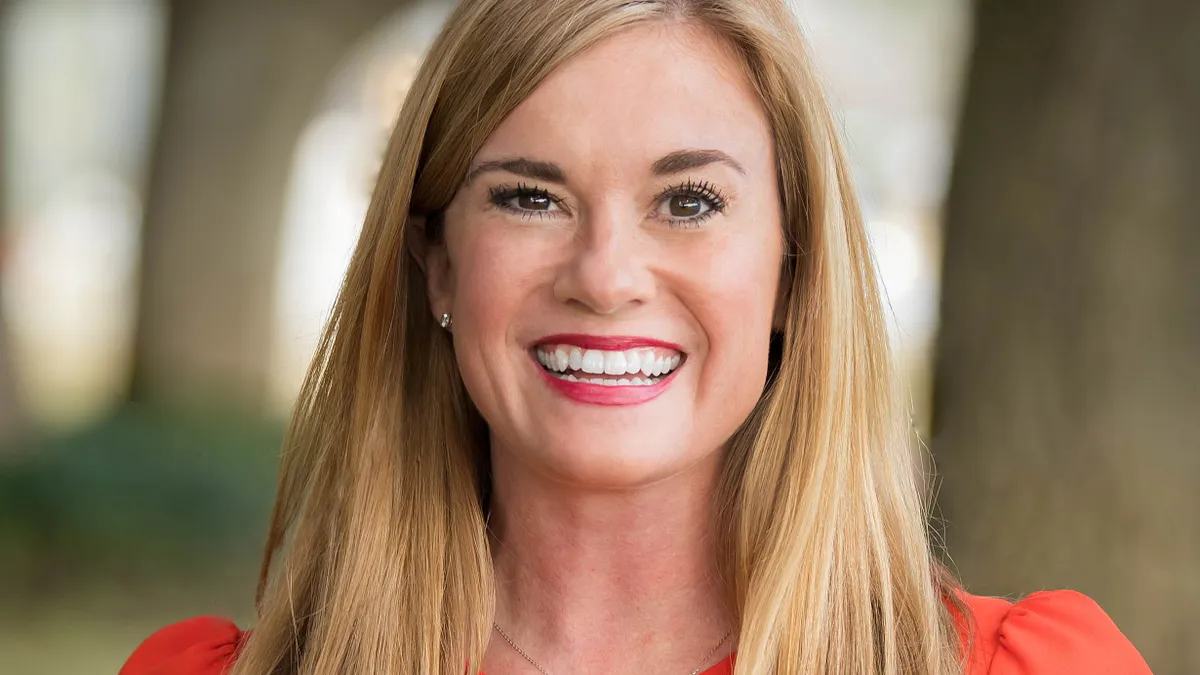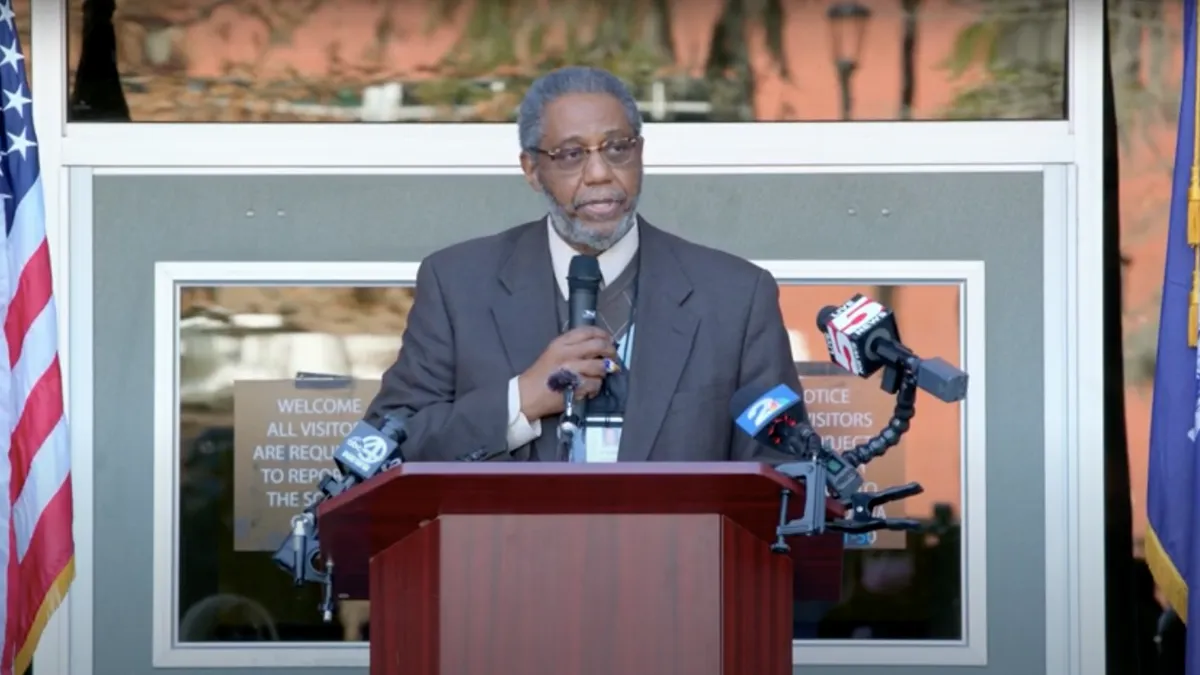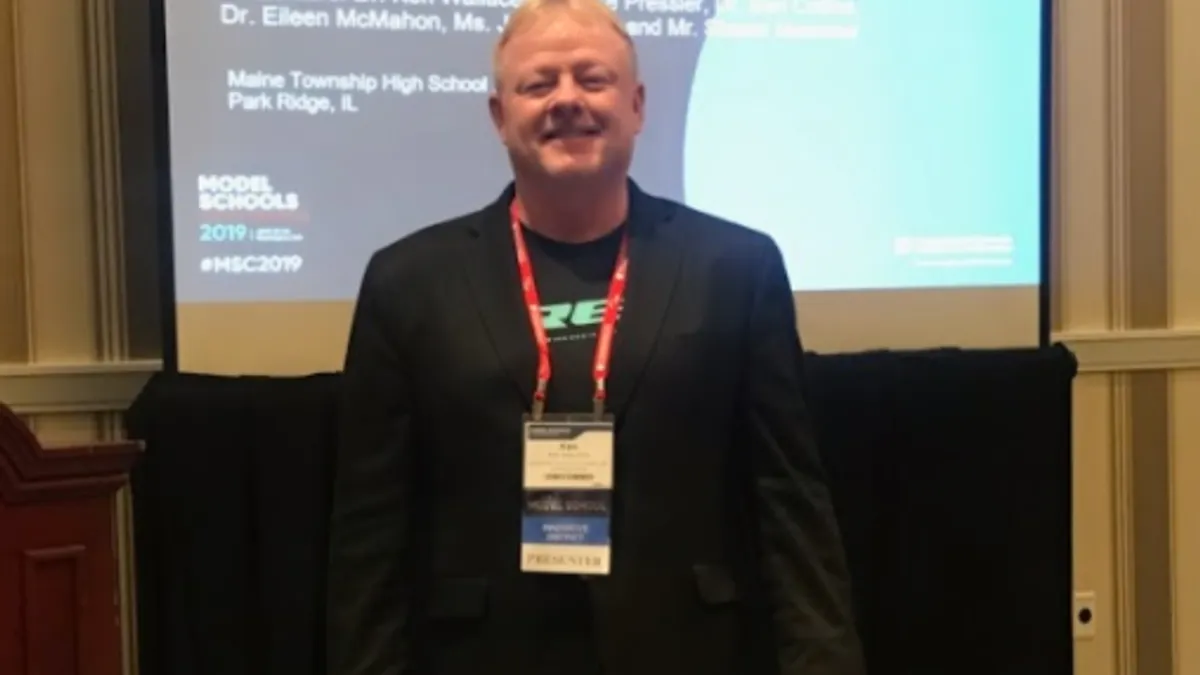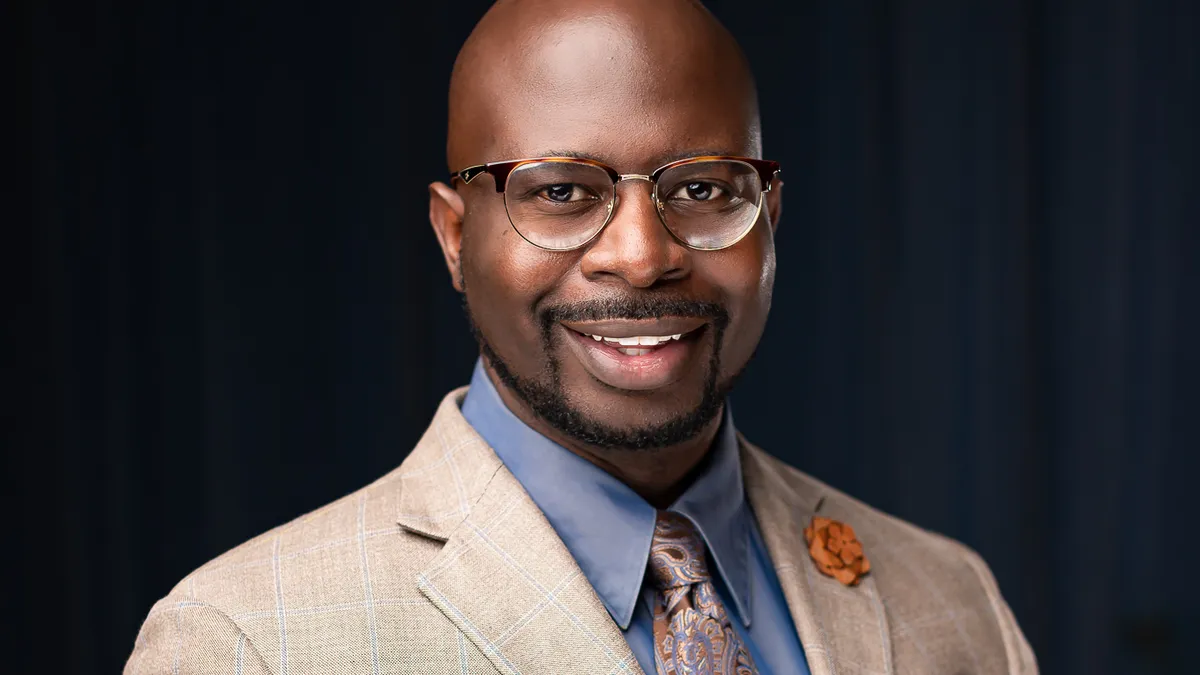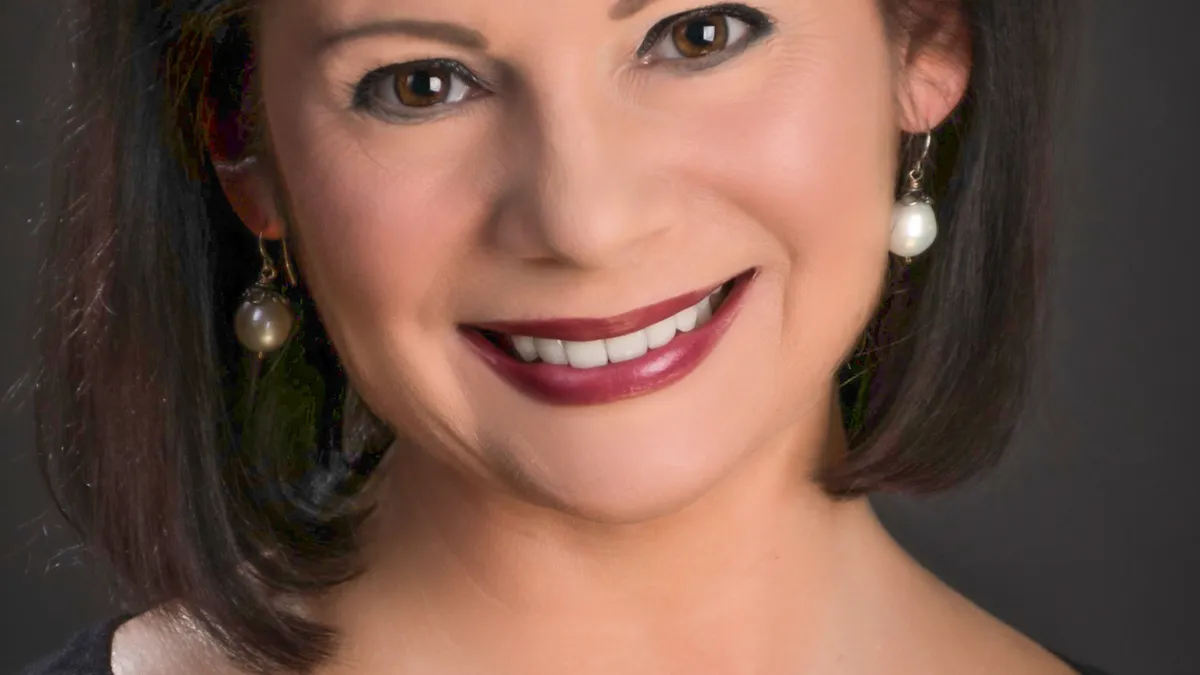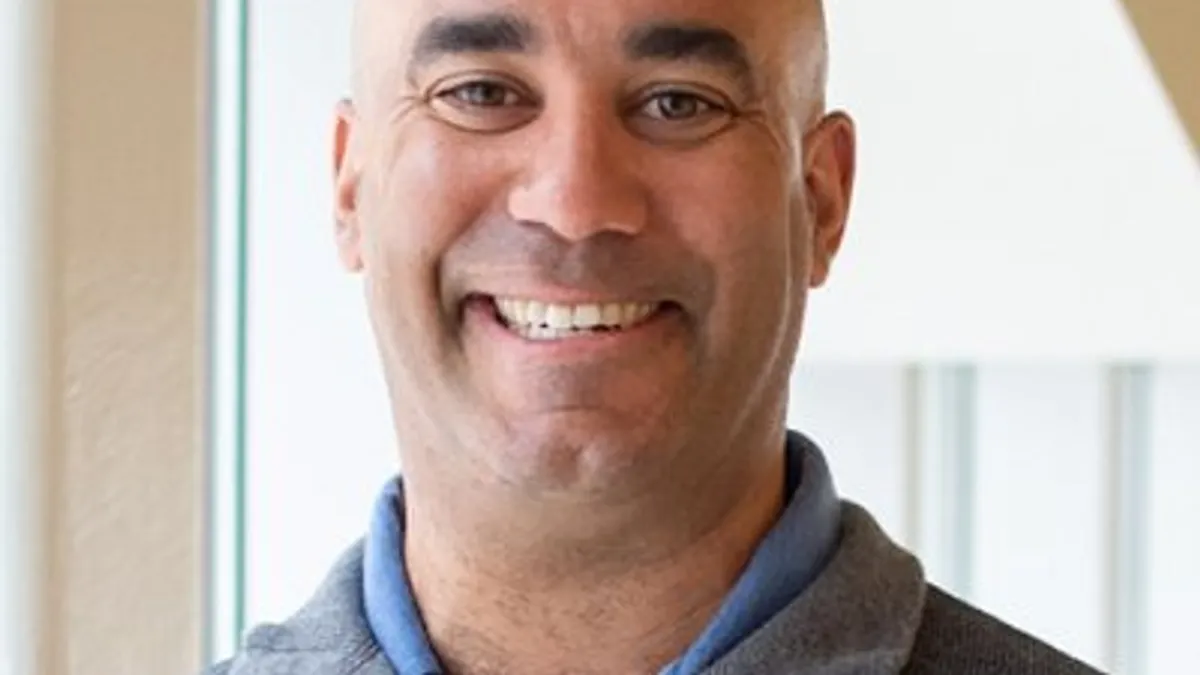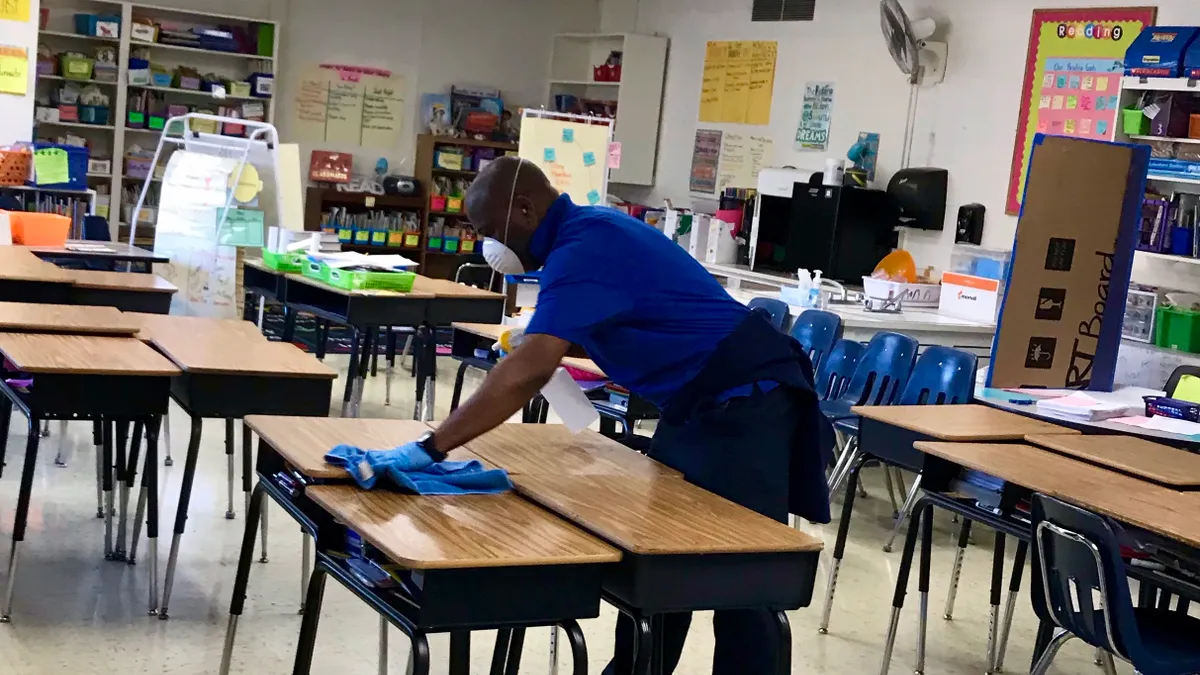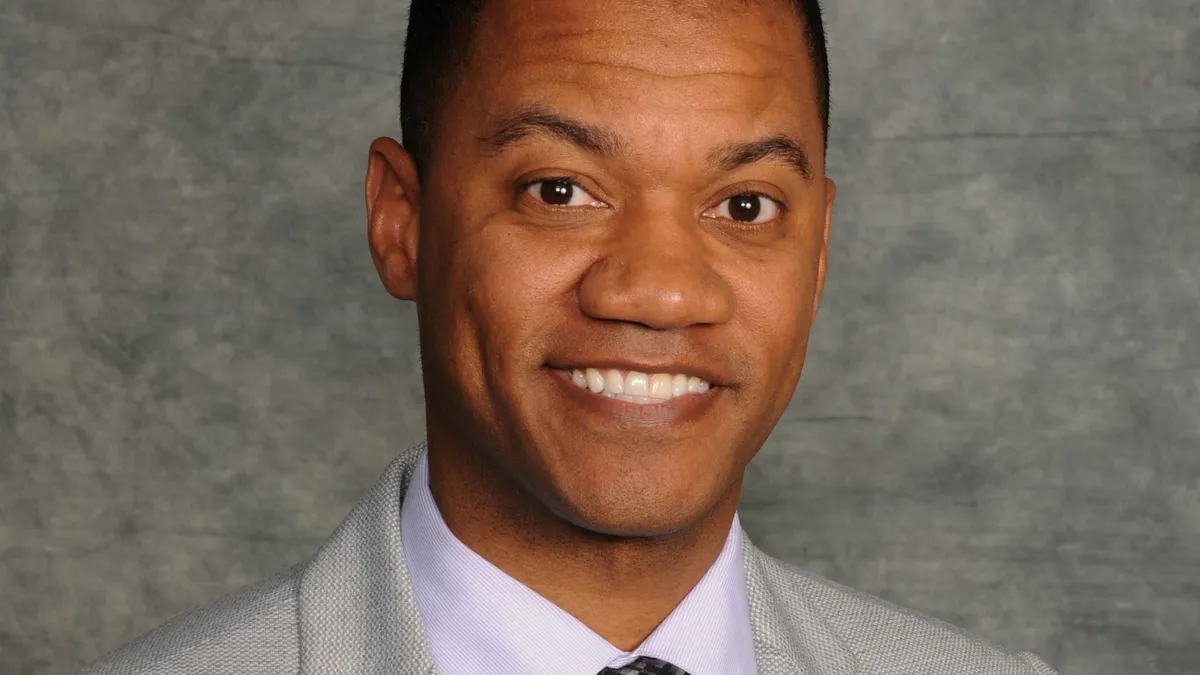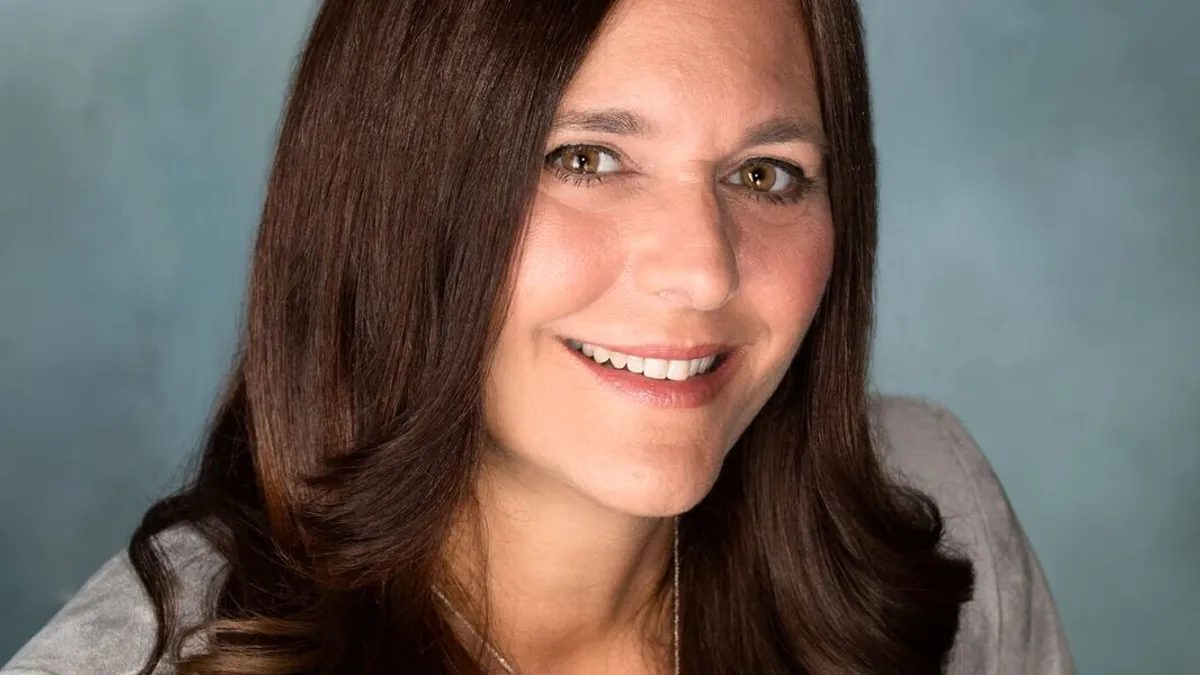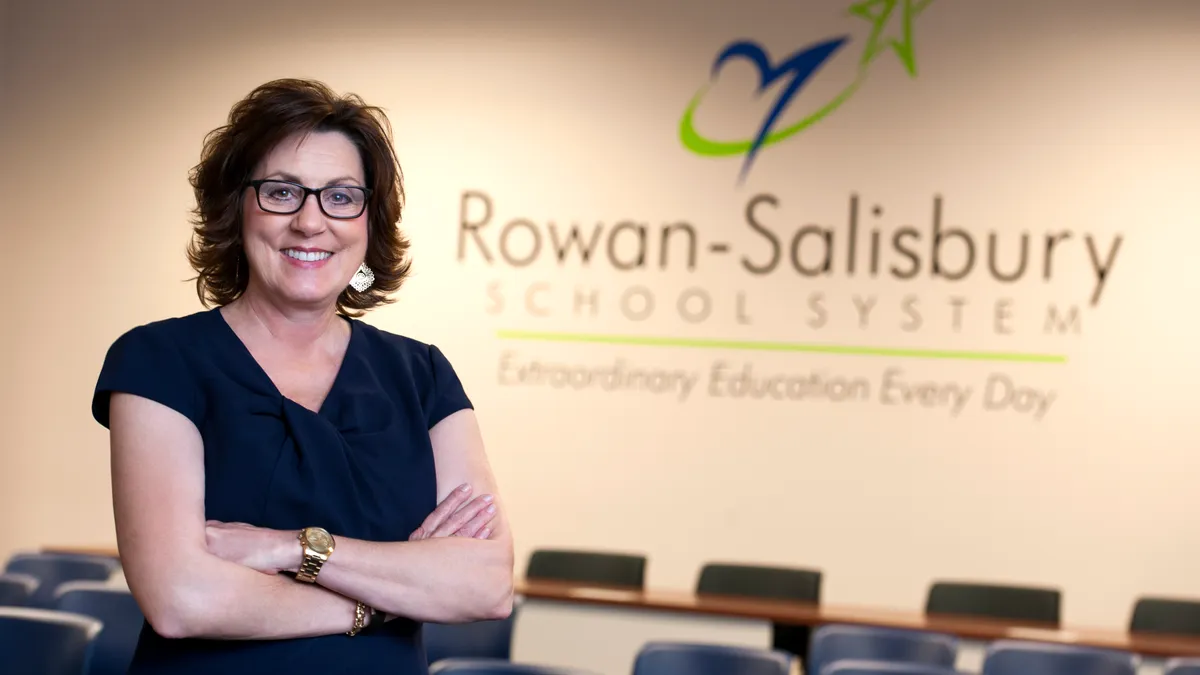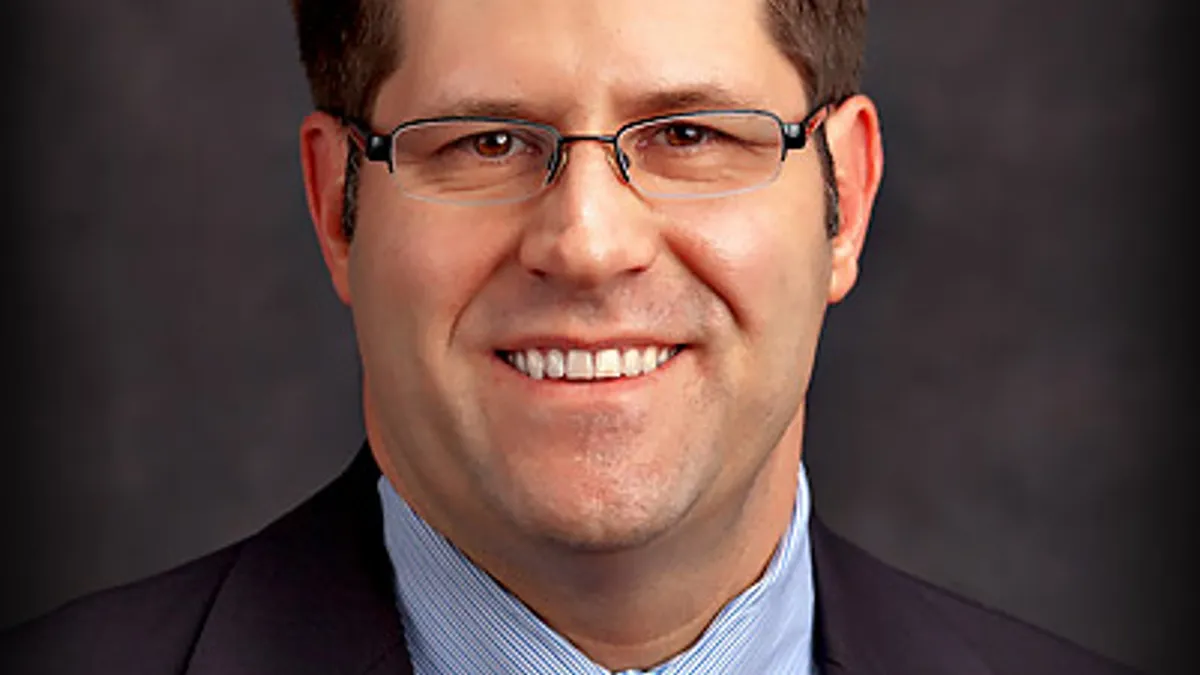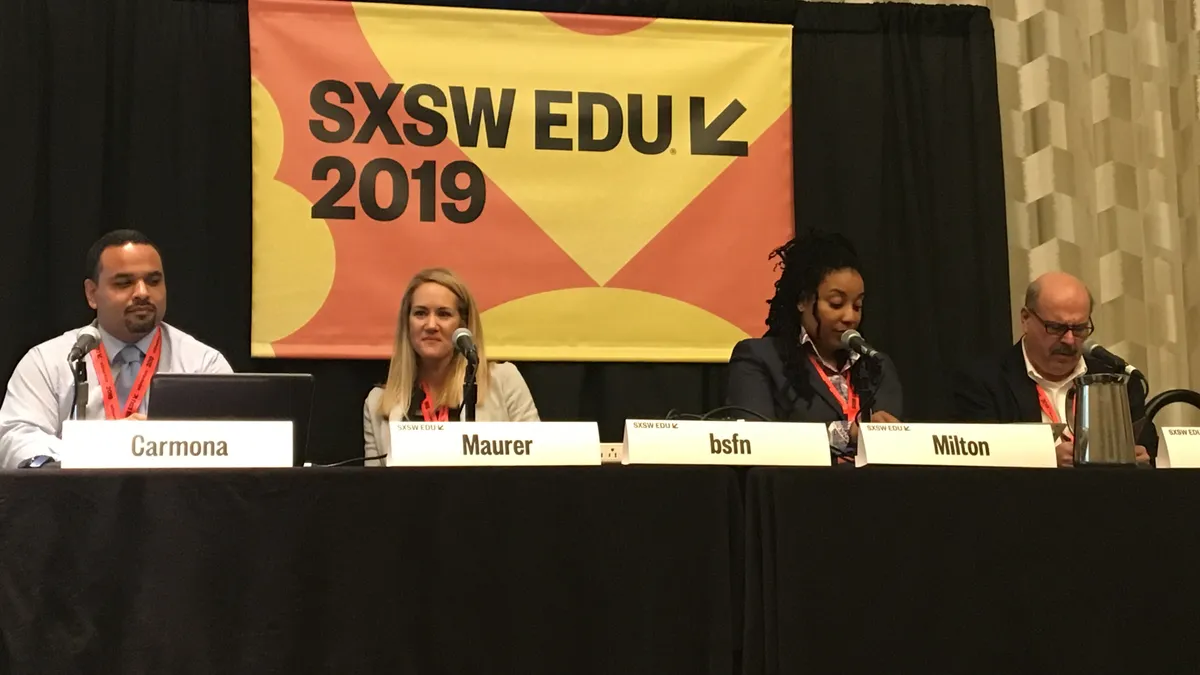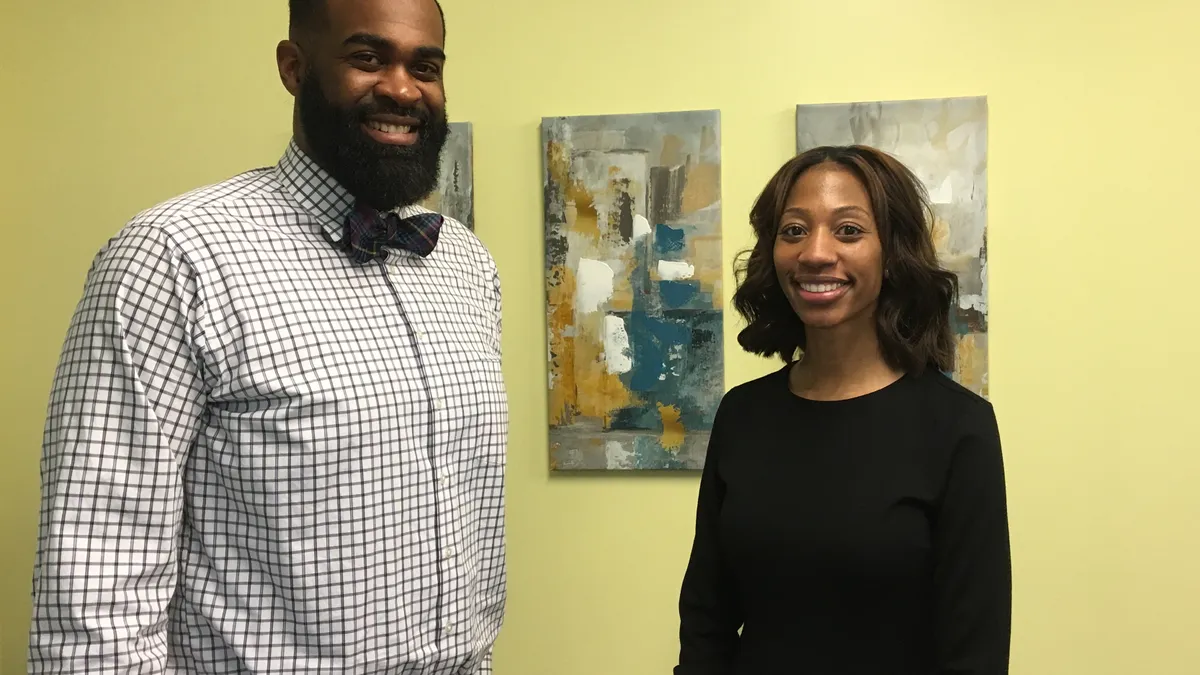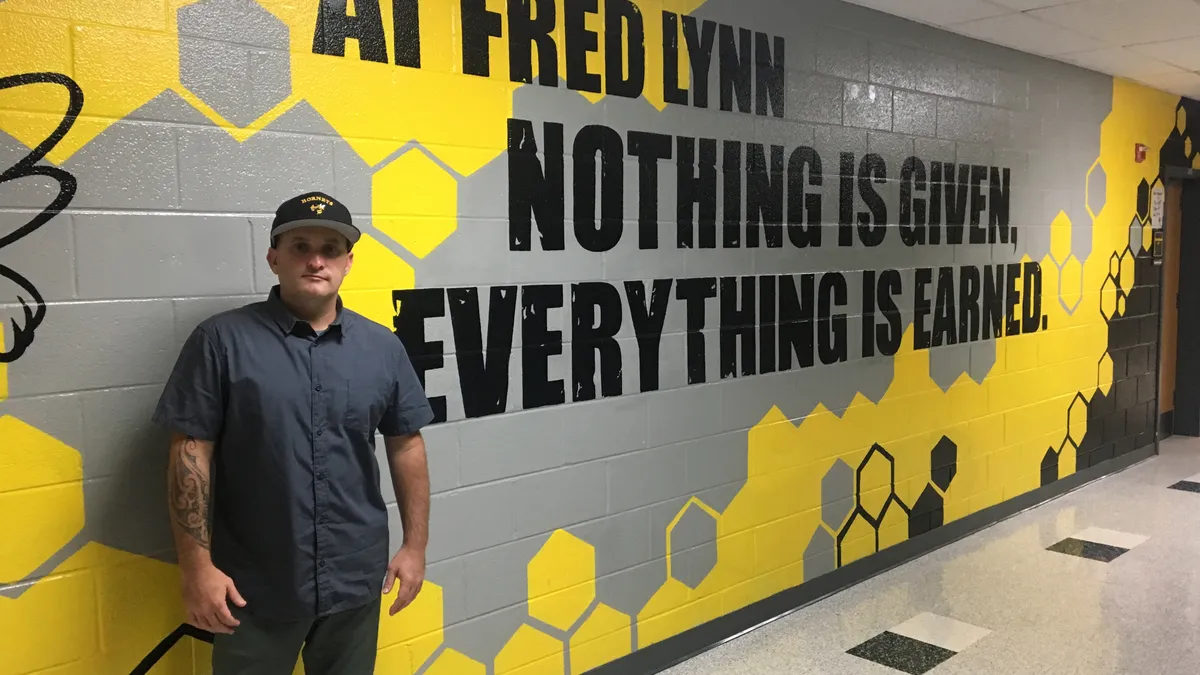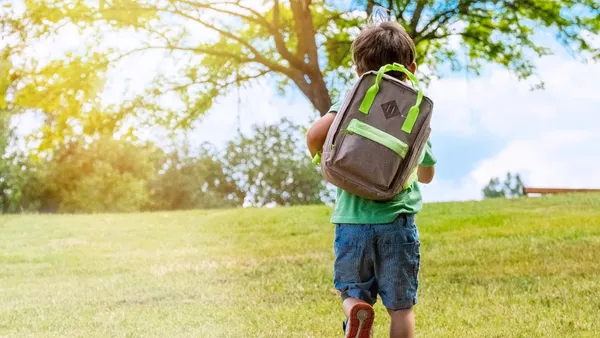Lessons In Leadership is an ongoing series in which K-12 principals and superintendents share their best practices as well as challenges overcome. For more installments, click here.
Starting as a principal during a pandemic is a difficult proposition on its own. But doing so while striving to turn around school culture? A seemingly Herculean task.
Yet at Bayside Sixth Grade Campus in Virginia Beach, Virginia, Principal Shampriest Bevel has done just that since taking on the role in 2021. Her mission, as she saw it, started from a place of putting student and teacher voice first during the global crisis.
“When I first got here — and during that time especially — I was like, ‘Oh, I need to really focus on what people really needed’ as opposed to worrying about the numbers and accreditation,” Bevel, the 2023 Virginia Principal of the Year and a 2024 National Principal of the Year finalist, told K-12 Dive. “I wanted to just take care of people.”
Over the course of our conversation, Bevel detailed why focusing on culture at the 327-student school is key, how those efforts have impacted attendance, academics and teacher retention, and her advice for other middle-grade leaders.
Editor’s Note: The following interview has been edited for brevity and clarity.
K-12 DIVE: How important is it to prioritize school culture, and how did you set out to do that?
SHAMPRIEST BEVEL: From the very beginning, I spent time just getting to know staff and making sure I knew students by their names and got backstories as much as possible. For example, when I first started, there was a goal to increase attendance. And I remember looking at the goals and saying, “The focus can't be on attendance, because the story goes much deeper than that.”
One of the first things I did was I pulled a student group. I told the teachers, “I want everybody to pick your most vocal students from their homerooms. I'm not worrying about behavior or anything else. I just want the most vocal students.” And I made that my first attendance focus group.
I just asked the kids, “What do you miss about elementary school? What did you want to see or participate in for middle school?” And I got all these neat ideas from the kids, and I used that as the way to leverage student voices and make school about what they wanted, rather than, “Do this, do this, do this, do this.”
I wanted it to be a place that they wanted to be — and the same thing for teachers. I made sure to listen to the things in the past that might have upset them or made them start disconnecting, because there used to be a huge turnover for this particular school. Teachers would come, and then after three years, they would go.
It was important to me to find out what made people happy, what would make people want to be in a school. I spent at least the first year and a half just worrying about people, doing little things every month for my staff, making sure I had student voice.
How have those efforts paid off in areas like academics and discipline?
BEVEL: For example, the attendance has gone up just this past month. We're over 98% for our attendance, and it's the highest monthly attendance for any school [in the district] for any month of the school year. So I'm really proud that we've gone from being 13th and 11th place out of all middle schools to being No. 1. I never had to focus on just the numbers. I had to focus on the people.
It's really showed up everywhere, we're leading on our math unit assessments. Our chronic absenteeism is down to single digits. It's because the kids want to be here, and the teachers want to teach.
Middle school years can be difficult for kids in general. How much do you and the teachers talk about understanding kids and their motivations?
BEVEL: I think that I have always modeled “kids first,” and I'm always quick to say, “They're 11 and 12.” And I think that I've been able to model having patience and understanding. When I have to hold them accountable, I do that. I've been very blessed in having staff on the same page.
It's definitely challenging, and it's even more challenging for us because we only have that one year to have that huge impact on them, but I think we do it. Because we get it. I don't have to explain to my teachers that you don't write 50 [discipline] referrals for kids just because they want to stand up at the back of the room because they have a little bit more energy. Or that the first time a student is late, please know you don't have to write a referral because they're late. Find out why they were late. We want our kids here.
There may be schools that don't allow kids to wear hoodies or, like, Crocs shoes. We don't worry about things like that. We want our kids here. If they show up with their hoods on their heads, as long as we can see their face or they have shoes on their feet, we’re happy for them to be here.
As a whole, we know how to let the small things be small things, and the things we need to address, we address. I know what we do works, because this January compared to last January, we're down 40% for [discipline] referrals, and we don't have anything as far as classroom interruptions and things like that.
Our kids know our expectations. We’re all on the same page. They know that when we do say something or when we do have to address discipline that they've really done something against school expectations, because we don't harp on every last little thing.
What is the most important thing other middle school principals can do to see the kind of school culture results that you have at Bayside?
BEVEL: The most important thing I think you can do is listen to your kids. I think that's huge. I started that as soon as I came in here. I mean, I came with all of these great ideas — and I've been able to do a lot of them — but what I think really made a difference was letting the kids know, “This is your school. What is it that you want? What are some things that you want to happen this year?”
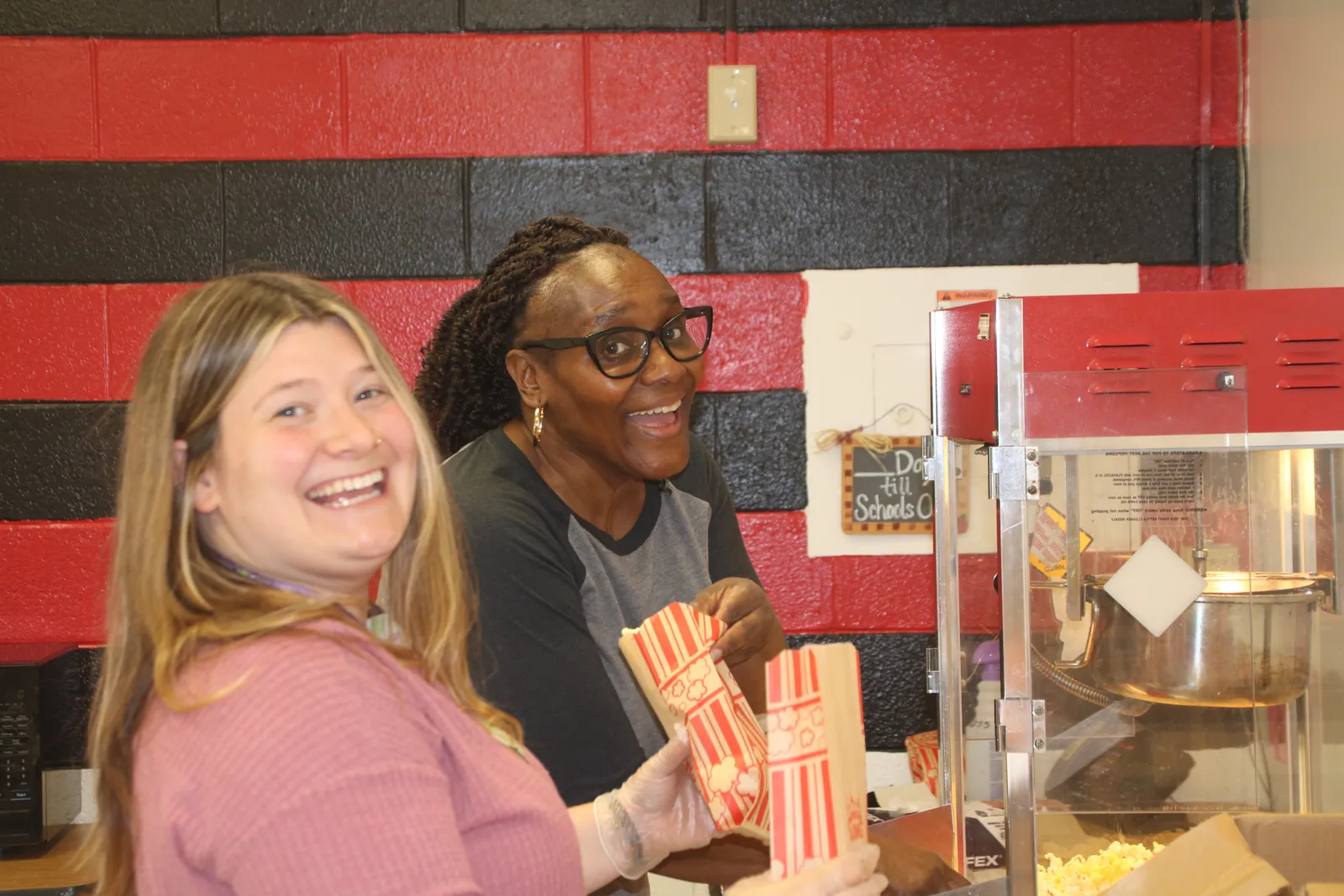
And you don't have to go and grab your most well-behaved students. You want the ones who want to talk, who are like, “I have a lot to say.” I think if more principals opened up that opportunity to their kids to share what it is that they would like to see — and that’s doable in a school — I think you can transform a school. Because it's for them. Their voice is really, really important.
From that one [student focus group] meeting, I heard one of the kids say, “Can we have, like, a popcorn party?” I mean, all you want is a popcorn party? It cost me all of $24 to have a popcorn party for the whole school, and it made them so happy. But it validated that someone was actually listening to them and wanted to do something to celebrate them.
It's important for student voice to have a place in your school and for the growth in your school. I know it's had a big part in mine. Kids are happy. And parents are happy when the kids are happy. The teachers are happy. It's not that hard, but it has to be very intentional.


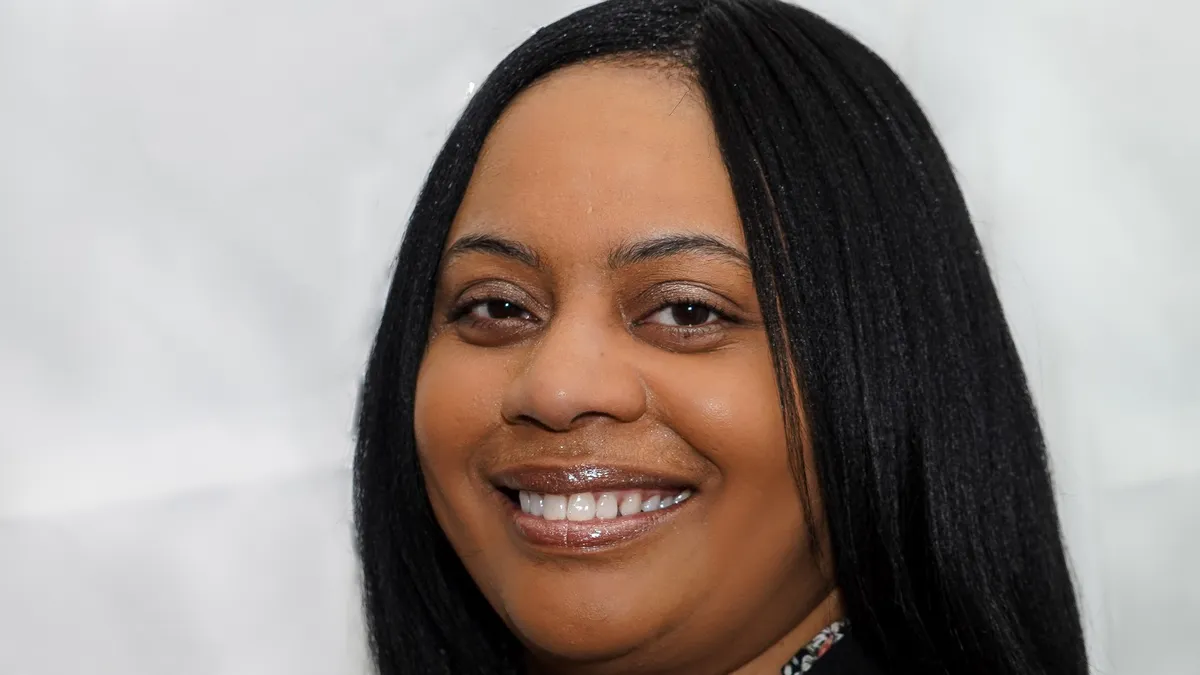



 Dive Awards
Dive Awards

